
Your Journey Starts Here
3501 Sansom Street, Philadelphia, PA 19104-6204
215.898.7400 | contactadmissions@law.upenn.edu
215.898.7743 | finaid@law.upenn.edu
215.898.9606
http://www.law.upenn.edu
University of Pennsylvania Non-Discrimination Policy and Safety Statement
The University of Pennsylvania values diversity and seeks talented students, faculty and staff with diverse backgrounds, experiences, and perspectives. The University of Pennsylvania does not discriminate on the basis of race, color, sex, sexual orientation, gender identity, religion, creed, national or ethnic origin, citizenship status, age, disability, veteran status or any other legally protected class status in the administration of its admissions, financial aid, educational or athletic programs, or other University-administered programs or in its employment practices.
Questions or complaints regarding this policy should be directed to the Executive Director of the Office of Affirmative Action and Equal Opportunity Programs, Franklin Building, 3451 Walnut Street, Suite 421, Philadelphia, PA 19104-6106; or (215) 898-6993. The University’s security policies and annual report is available at https://www.publicsafety.upenn.edu/clery/. The University of Pennsylvania must reserve the right to make changes affecting policies, fees, curricula, or any other matters announced in this publication or on its website.
Learning Outcomes
Penn Carey Law’s program of legal education, combining our rich, interdisciplinary curriculum, varied co-curricular activities, and pro bono responsibilities, prepares our students for admission to the bar and to serve as effective, ethical, and responsible members of the legal profession. Each student will be able to do the following:
- Demonstrate a core knowledge and understanding of substantive and procedural law in a number of different subject areas;
- Engage in legal analysis and reasoning, conduct efficient and effective legal research, apply problem-solving skills, and present findings, analyses, and recommendations efficiently and effectively in both written and oral communication;
- Work collaboratively;
- Demonstrate an understanding of the interdisciplinary nature of law and the contributions and benefits to legal analysis and problem solving that other disciplines can make;
- Exercise proper professional judgment and fulfill ethical responsibilities to clients, the profession, and society in general; and
- Utilize a range of professional skills that facilitate active, competent, and ethical participation in the legal profession.
CONGRATULATIONS ON YOUR ADMISSION TO THE UNIVERSITY OF PENNSYLVANIA CAREY LAW SCHOOL
The transformative journey you are about to embark upon coincides with unprecedented growth at Penn Carey Law, from our expanding faculty to increased funding, particularly for public interest careers. We firmly believe that our uniquely interdisciplinary, collegial approach to legal education is the best way to nurture lawyers and leaders adept at navigating conflict with civility, equipped to address complex problems, and ready to achieve extraordinary impact. We’re so excited to have you here.
Penn Carey Law has long been a pioneer in interdisciplinary legal education, unwavering in our commitment to providing a well-rounded education enriched by parallel study in other fields. Our cross-disciplinary programs prepare you to be an effective leader working at the nexus of the law and arts and media, business, education, medicine, public policy, social work, science and technology, and more. We offer unrivaled opportunities to pursue joint degrees and cross-disciplinary certificate programs at Penn’s 11 world-class graduate and professional schools—all a short walk away from the Law School—as well as opportunities to enhance your legal education by studying abroad or engaging in global research seminars.
Through our robust clinical programs and pro bono projects, you will learn and work alongside award-winning teachers, visionary scholars, and exceptional attorneys advocating in the public’s interest. Our academic centers and institutes spearhead impactful research and provide thought leadership and action on today’s most urgent, complex problems.
Our Office of Career Strategy provides comprehensive support from your first day in law school throughout your professional life, and the results are unmatched: Penn Carey Law leads the nation in career outcomes for new graduates. After graduation, you will benefit from our lifelong learning and career support programs.
A collaborative, collegial community of peers, instructors, alumni, mentors, and practitioners awaits you at our campus nestled into West Philadelphia, which bustles with student-organized conferences and symposia, active student organizations and affinity groups, rich intellectual pursuits, and opportunities to give back to the local community.
I cannot wait to see what you will accomplish in your time at Penn Carey Law and beyond.
Sincerely,

Dean and Bernard G. Segal Professor of Law
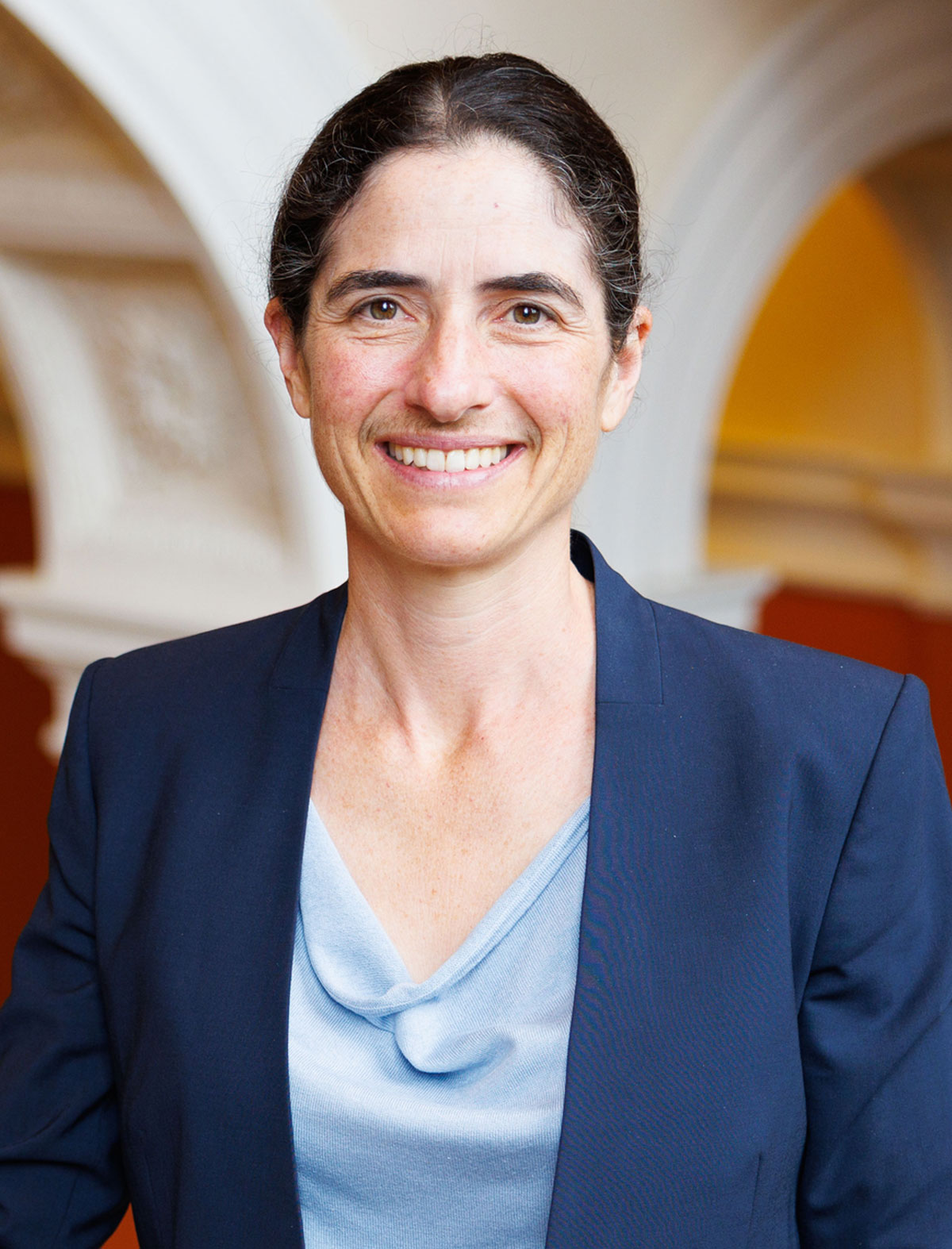

CONGRATULATIONS ON YOUR ADMISSION TO THE UNIVERSITY OF PENNSYLVANIA CAREY LAW SCHOOL
The transformative journey you are about to embark upon coincides with unprecedented growth at Penn Carey Law, from our expanding faculty to increased funding, particularly for public interest careers. We firmly believe that our uniquely interdisciplinary, collegial approach to legal education is the best way to nurture lawyers and leaders adept at navigating conflict with civility, equipped to address complex problems, and ready to achieve extraordinary impact. We’re so excited to have you here.
Penn Carey Law has long been a pioneer in interdisciplinary legal education, unwavering in our commitment to providing a well-rounded education enriched by parallel study in other fields. Our cross-disciplinary programs prepare you to be an effective leader working at the nexus of the law and arts and media, business, education, medicine, public policy, social work, science and technology, and more. We offer unrivaled opportunities to pursue joint degrees and cross-disciplinary certificate programs at Penn’s 11 world-class graduate and professional schools—all a short walk away from the Law School—as well as opportunities to enhance your legal education by studying abroad or engaging in global research seminars.
Through our robust clinical programs and pro bono projects, you will learn and work alongside award-winning teachers, visionary scholars, and exceptional attorneys advocating in the public’s interest. Our academic centers and institutes spearhead impactful research and provide thought leadership and action on today’s most urgent, complex problems.
Our Office of Career Strategy provides comprehensive support from your first day in law school throughout your professional life, and the results are unmatched: Penn Carey Law leads the nation in career outcomes for new graduates. After graduation, you will benefit from our lifelong learning and career support programs.
A collaborative, collegial community of peers, instructors, alumni, mentors, and practitioners awaits you at our campus nestled into West Philadelphia, which bustles with student-organized conferences and symposia, active student organizations and affinity groups, rich intellectual pursuits, and opportunities to give back to the local community.
I cannot wait to see what you will accomplish in your time at Penn Carey Law and beyond.
Sincerely,

Dean and Bernard G. Segal Professor of Law
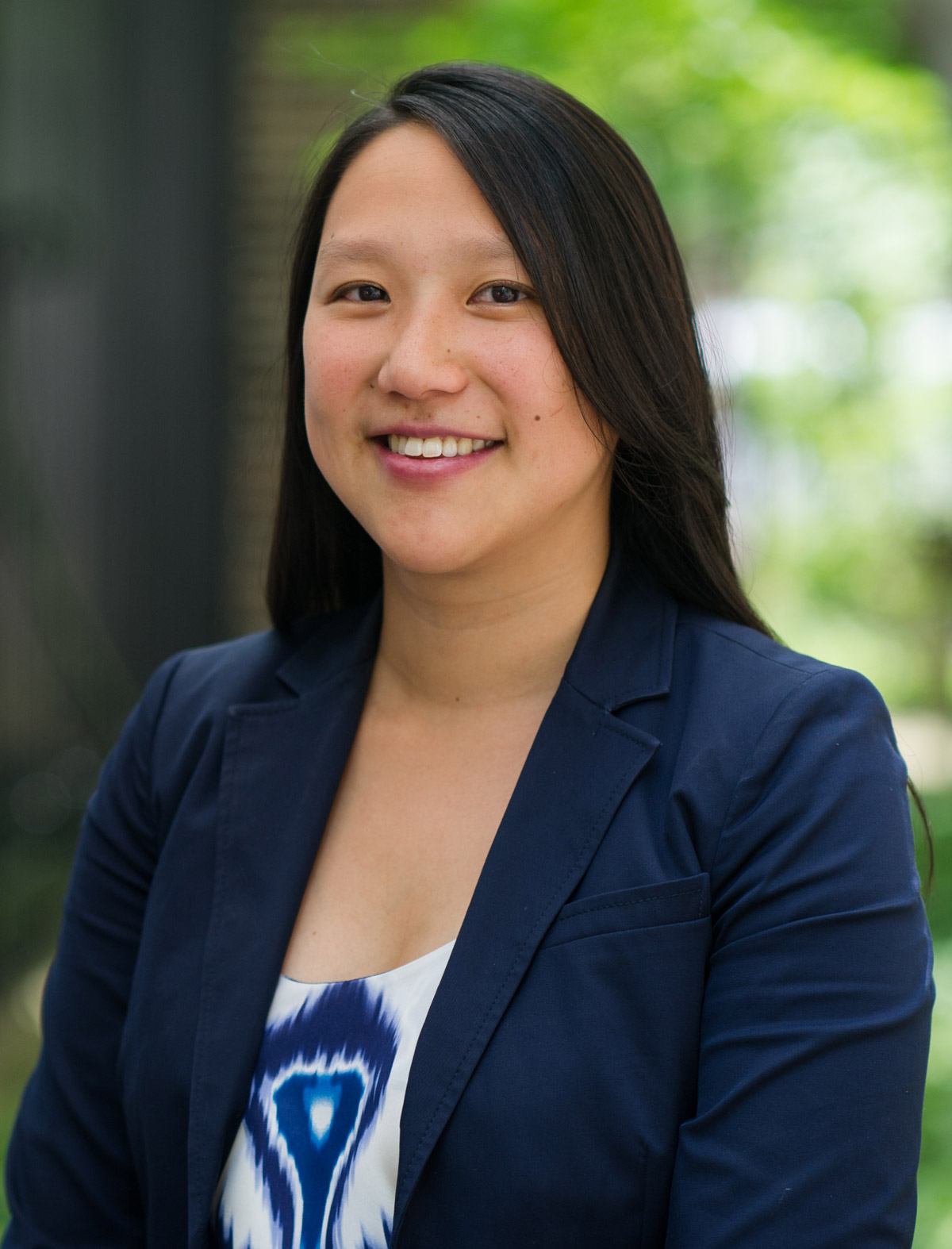
WELCOME TO PENN CAREY LAW
As an alumna of Penn Carey Law, I have firsthand experience of the transformative power of legal education. I can also confidently say there has never been a more exciting time to join Penn Carey Law. Our students and graduates are afforded the very best opportunities that Penn and the Law School have to offer.
As you begin your path toward a unique career and future, know that Penn Carey Law’s community is here for you on every step of your journey. The connections you build here—with faculty, staff, fellow students, and alumni—will last a lifetime! I encourage you to take advantage of opportunities to collaborate with faculty on groundbreaking legal scholarship and to seek support and mentorship from the Law School’s active, engaged alumni network.
You belong here, and we are committed to supporting your ability to thrive. We don’t just want you to excel academically, although that is important! We want you to make your time at Penn Carey Law your own and, hopefully, have fun along the way. I encourage you to explore Philadelphia with your classmates, relax in the courtyard, and attend numerous academic and social events throughout the year.
This guide includes important details about Penn Carey Law’s curriculum and programs, faculty, pro bono requirement, and more. You’ll also find a list of resources to help you navigate Penn and Philadelphia. Please carefully review this information and contact the Office of Admissions & Financial Aid if you have any questions.
Congratulations once again, and welcome to Penn Carey Law!

Vice Dean for Student Services and Dean of Students
Collegiality Our Collaborative Ethos
Penn Carey Law strives to create an inclusive community where collaboration and teamwork thrive. We engage our colleagues in ways that respect and celebrate the diverse philosophies and experiences inherent in a community as rich in ideas and backgrounds as Penn Carey Law.
Our supportive community encourages students to take intellectual risks. Furthermore, our students do not receive class rankings. Our belief—confirmed by employers and leaders in the profession—is that students who learn the law in a supportive, collaborative environment make exceptional lawyers and leaders.
Our Inclusive and Engaged Community
The Office of Equity & Inclusion (E&I) partners with students, staff, faculty, and alumni in fostering a strong sense of belonging for all. We support affinity groups and members of communities that have been historically underrepresented in the legal profession. We also develop educational programs and opportunities for dialogue for all members of the Penn Carey Law community on matters of access, equity, and justice—fostering a commitment to learning and growing together to nurture our inclusive community.

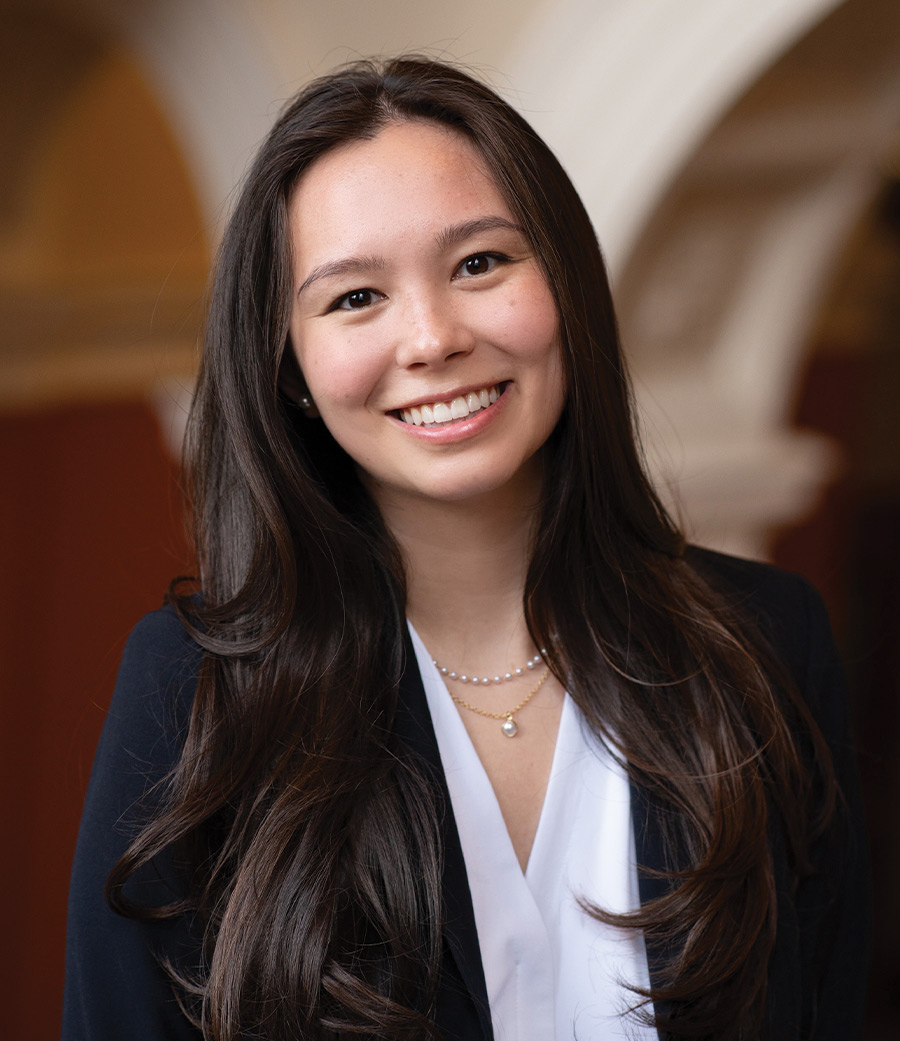
Caitlin Kim L’23
New York, NY
Cross-Disciplinary Excellence
Excellence
At Penn Carey Law, you will receive an innovative legal education that prepares graduates to succeed in a world in which lawyers must expertly navigate diverse fields to serve their clients and address urgent issues affecting communities around the globe.
Over 150 students graduate each year with joint degrees or certificates that propel them along varied career paths. Even if you choose not to pursue a joint degree or certificate, you have opportunities to take up to four classes at Penn’s world-class graduate and professional schools, all of which are a short walk from the Law School.
completed a joint-degree or certificate program from a sister school at Penn
took at least one non-law class at a partner school
offered and accessible on one contiguous campus
hold advanced degree beyond the JD

Chisom Nwakama L’24, MBE’24
“Some of the most interesting classes I have taken at Penn have been courses related to my Master in Bioethics (MBE) degree through the Perelman School of Medicine. I have enjoyed engaging with other bioethical professionals such as future physicians, nurses, and dentists on a broad range of issues. I am interested in pursuing a career in intellectual property with an emphasis on the life sciences. My JD/MBE dual degree has given me the background and knowledge to understand the bioethical issues surrounding legal work in the life sciences.”
JD/MA or MS, Criminology
JD/MA, Philosophy
JD/MSEd, Education Policy
JD/MSEd, Higher Education
JD/MA, International Studies
JD/MA, Economic Law with Specialization in Global Governance (Sciences Po)
JD/MBE, Bioethics
JD/MS, Nonprofit Leadership
JD/MSSP, Social Policy
JD/MSW, Social Work (for BSW candidates)
JD/MUSA, Urban Spatial Analytics
JD/LLM, Hong Kong University
Wharton Business Economics and Public Policy
Communication and Media Policy
East Asian Studies
Energy Management and Policy
Engineering Entrepreneurship
Environmental Policy
Environmental Science
Experimental Ethnography
Gender, Sexuality, and Women’s Studies
Global Human Rights
Latin American and Latino Studies
LGBTQ Certificate
Wharton Certificate in Management
Middle East and Islamic Studies
Nonprofit Leadership
SCAN Neuroscience
JD/MCIT, Computing and Information Technology
JD/MCP, City and Regional Planning
JD/MPA, Public Administration
JD/MPH, Master of Public Health
JD/MES, Environmental Studies
JD/AM, Islamic Studies
JD/MBA, Business Administration
JD/PhD, American Legal History
JD/PhD, Philosophy
JD/BA, JD/BS, University of Pennsylvania
JD/MD, Medicine
JD/DMD, Dentistry
LEADERS IN LAW AND BUSINESS
Designed exclusively for Law School students and taught by Wharton faculty, the certificate complements and strengthens the practical training Penn Carey Law students receive as part of a comprehensive, cross-disciplinary legal education. The managerial and leadership skills taught in the course build upon the extensive practice skills law students develop in Penn Carey Law’s clinics, externship programs, and pro bono projects.
Students earn both JD and MBA degrees in three years, rather than the five years it would typically take to earn each degree separately. Students spend their first year at the Law School and the following summer in law and Wharton courses designed specifically for the JD/MBA Program. The second and third years include a combination of law and Wharton courses, along with the JD/MBA capstone course in the third year.
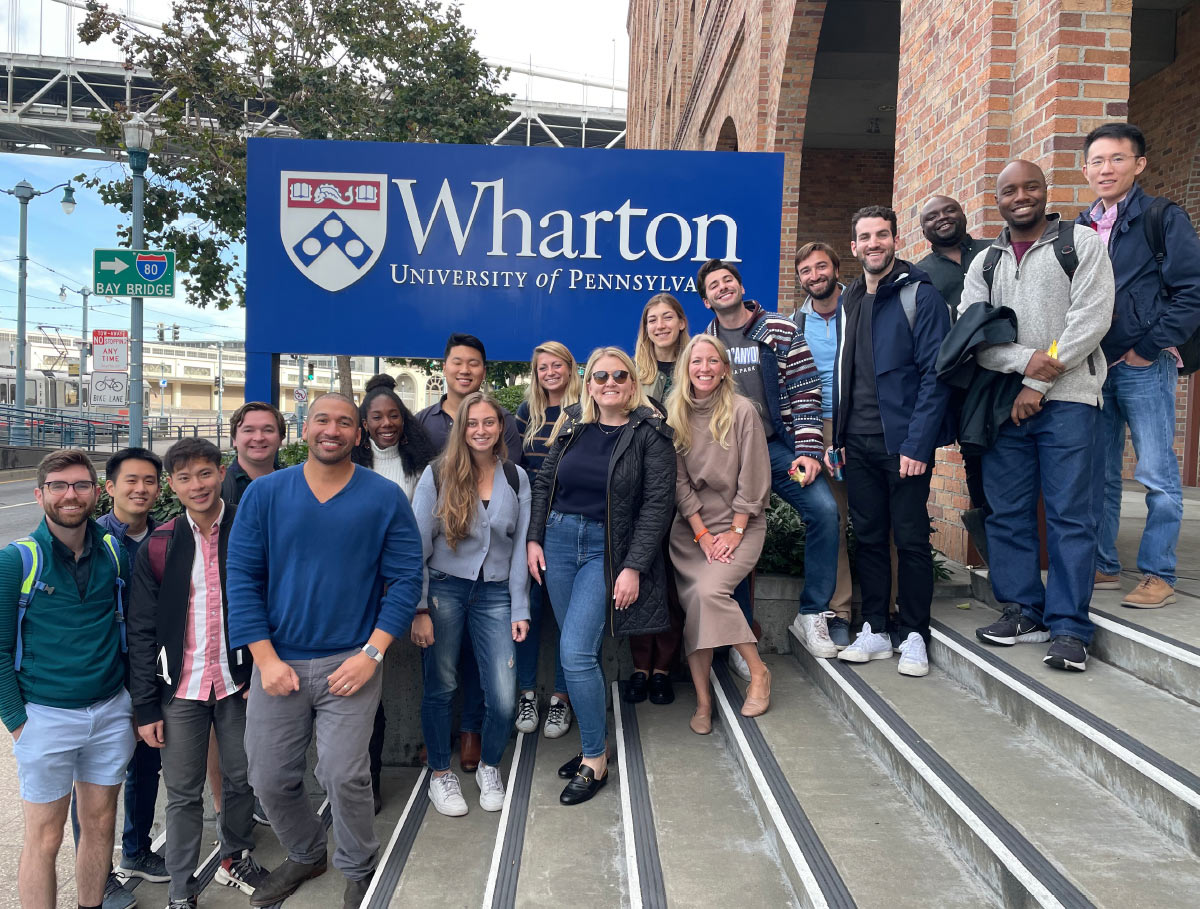
The Business, Economics and Public Policy (BEPP) Certificate
Advancing Law and Technology
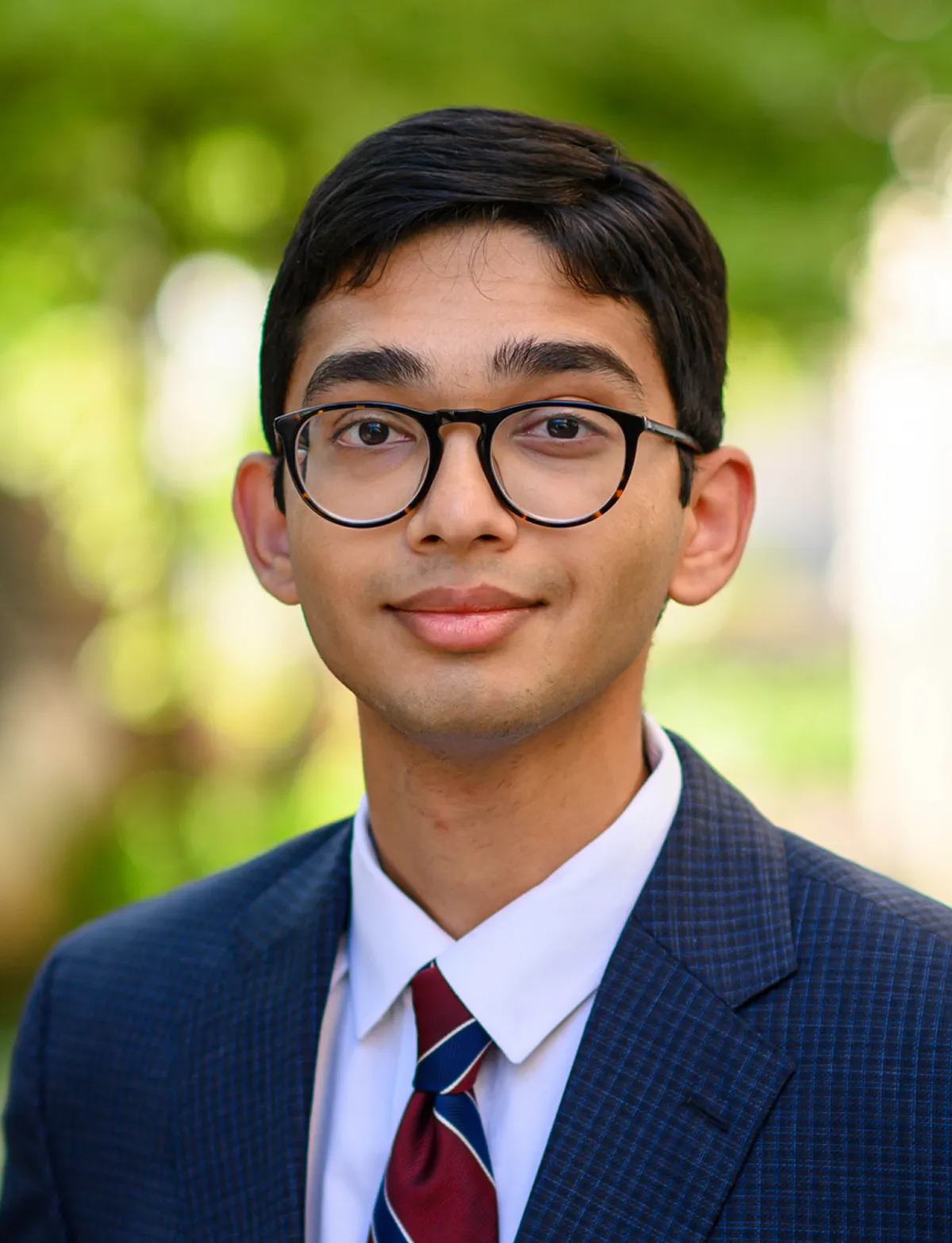
Manish Namireddy L’23
“Penn Carey Law’s cross-disciplinary program allowed me to take a variety of intellectual property-focused classes and seminars, as well as engineering entrepreneurship classes. I also participated in the Detkin Intellectual Property & Technology Legal Clinic where I provided pro bono IP counsel to emerging companies. I believe these experiences will make me a more effective counselor.”
The Master of Computing and Information Technology (MCIT) degree is ideal for those with no prior degree in engineering or computer science but who are interested in the practice of information technology. Students with qualifying undergraduate academic backgrounds and experience may pursue any Penn Engineering master’s degree.
Jessie Levin L’25, GEng’25
“Several of the Law School’s interdisciplinary classes highlighted the nexus of the law and technology. Recognizing my interest in this area, I pursued Penn Carey Law’s unique JD/MCIT program to gain technical expertise that would complement my legal education. The JD/MCIT program seamlessly integrates the two programs. For example, I can choose MCIT electives to truly tailor my engineering education to my legal interests.”
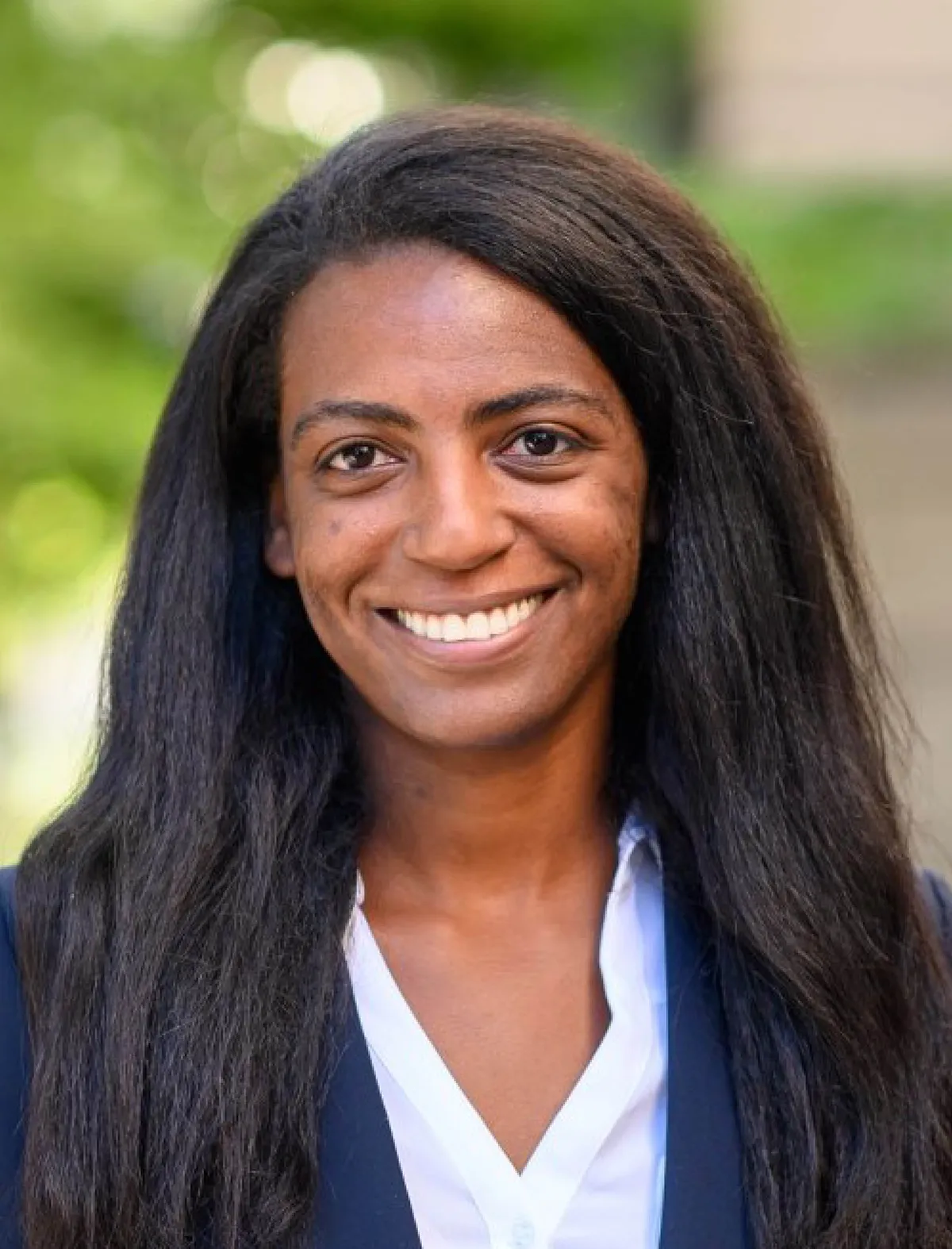
Career Ready Professionals
Our comprehensive suite of programs, services, and resources includes individualized career counseling, training and skill-building workshops, practice area and job search educational information, alumni and employer networking opportunities, recruiting programs and job fairs, and application review. No matter your career path, OCS is here to help you bolster your strengths, explore practice areas and settings, and identify where you want to focus your career.
OCS counselors are experienced in coaching students with a broad range of career interests, and each counselor draws from a background as a legal practitioner. OCS counselors also offer specialized expertise in international, public sector (government and nonprofit), private sector, and judicial clerkship employment and stay on the cutting edge of shifts in the legal job market and employment trends.

Matthew Fleming L’23
San Diego, CA
“Working through OCS, Penn has provided me with immense resources to obtain career opportunities that I would have never obtained alone. Penn enabled me to achieve employment in a difficult market (San Diego) and obtain judicial internships at both the Delaware Chancery Court and Delaware District Court during the school year. Working with OCS made it easy to find a dream career that fit my professional goals.”
Careers: By the Numbers
Penn Carey Law students are recruited by employers both nationally and internationally, and as a Penn Carey Law student, you will have access to the most diverse variety of legal employers. You will also have opportunities to engage with and learn from alumni worldwide who have used their law degrees to excel in a wide array of legal fields.
The Office of Career Strategy offers tailored individual counseling to all JDs, LLMs, and alumni. With career counseling professionals—all of whom hold JD degrees—with decades of collective and diverse experience, we provide comprehensive and customized services on all aspects of the job search. Our counselors work closely with students and alumni to think strategically and set goals that align to both short-term and long-term career success.
Employment Statistics
Employment Locations



Public Sector Careers
Summer Employment Funding
International fellowships and internship programs support students working in a variety of human rights organizations and governmental and nongovernmental agencies around the world.
There are many paths to a career in law. Penn Carey Law students secure summer opportunities in federal, state, and local government offices, as well as legal aid, public policy, and impact litigation organizations.
Judicial Clerkships
Many of our faculty members have held prestigious clerkships, and they—along with OCS’s clerkship counselor—advise and guide students as they move through the application process. Penn Carey Law’s OCS also offers extensive programming on the value of clerking, and clerkship applicants are supported by a network of former clerks, alumni judges, and faculty members committed to the success of our students and alumni.
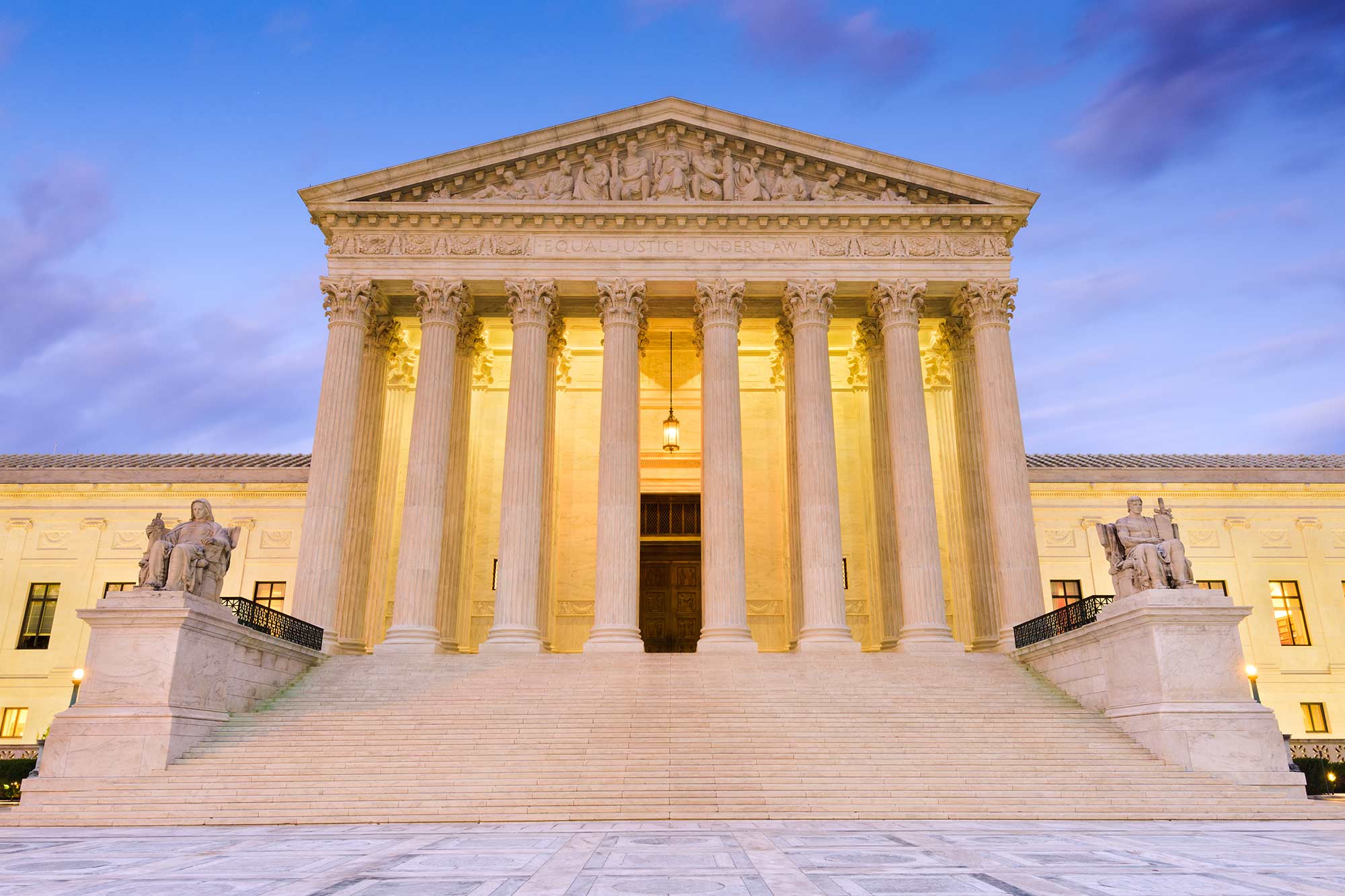
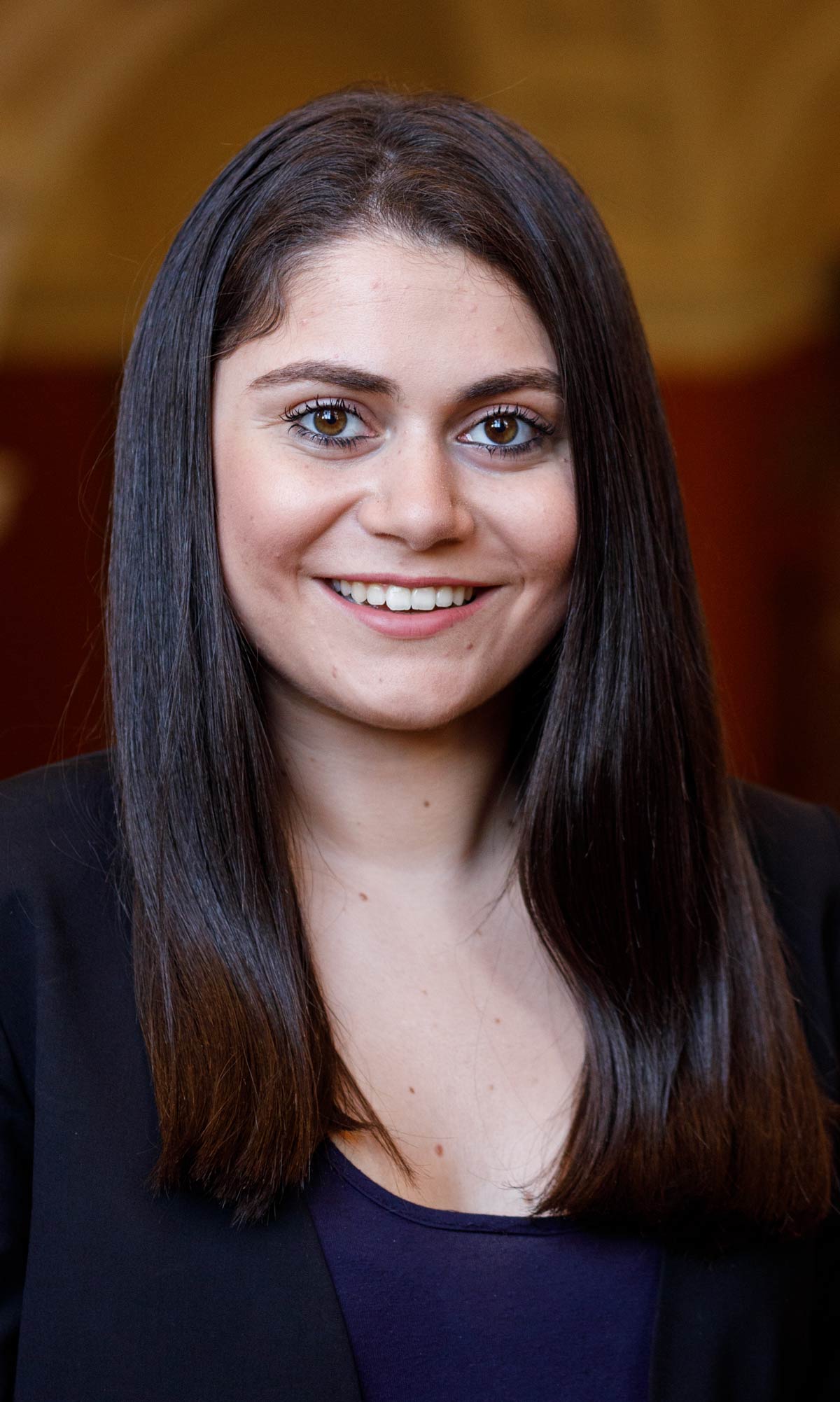
Daniella Cass C’19, L’22
Law Clerk to Judge Paul B. Matey, U.S. Court of Appeals for the Third Circuit, Philadelphia, Pennsylvania (2023-2024);
Law Clerk to Senior Judge Gerald Bard Tjoflat, U.S. Court of Appeals for the Eleventh Circuit, Jacksonville, Florida (2022-2023)
“Thanks to Penn Carey Law, I’m starting my law career with three amazing clerkships. The entire clerkship committee and staff, especially Professor Yoo, Professor Struve, and Chris Fritton, were generous with their time and advice throughout the whole clerkship process. Penn Carey Law’s clerkship program doesn’t get the recognition it deserves!”
Distinguished Faculty
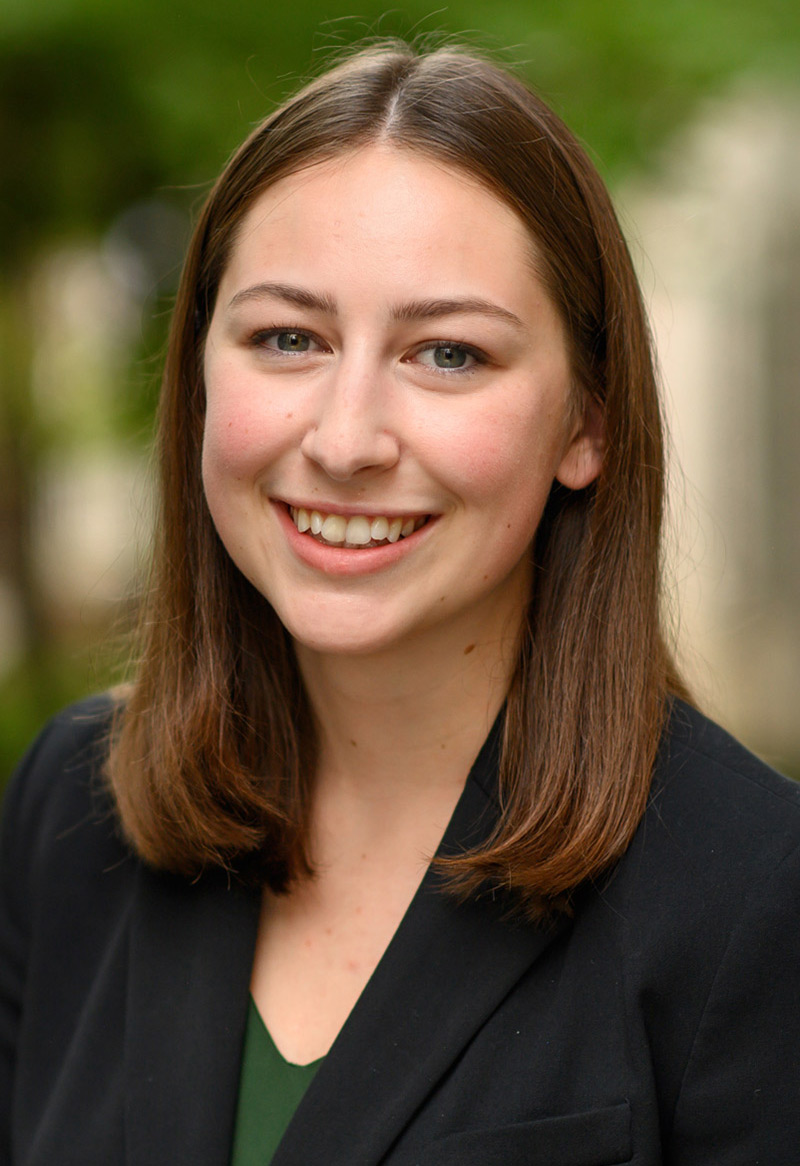
Laura Hannon L’24, SP2’24
Center for Tax Law & Policy
Center for Technology, Innovation & Competition
Criminal Law Research Group
Institute for Law & Economics
Institute for Law & Philosophy
Legal History Consortium
Penn Program on Documentaries & the Law
Penn Program on Regulation
Quattrone Center for the Fair Administration of Justice
PIONEERING Cross-disciplinary Research
Tomorrow’s challenges require an education that crosses boundaries and expands our understanding of the law and the world, and Penn Carey Law’s world-class faculty is ready to share their expertise with you.
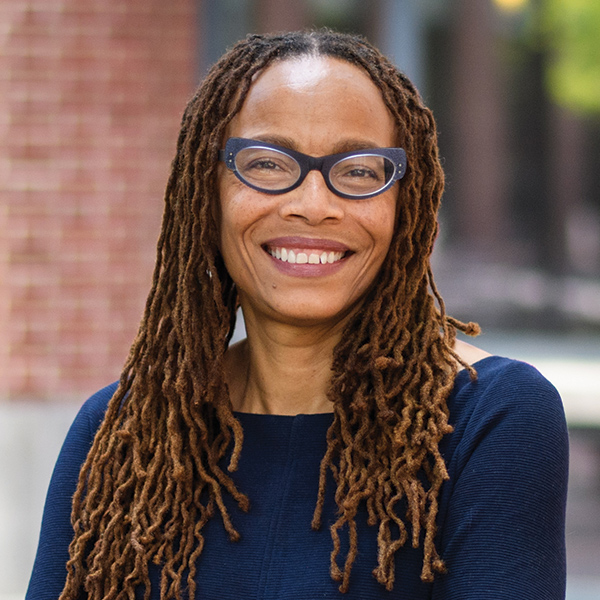
Dorothy E. Roberts
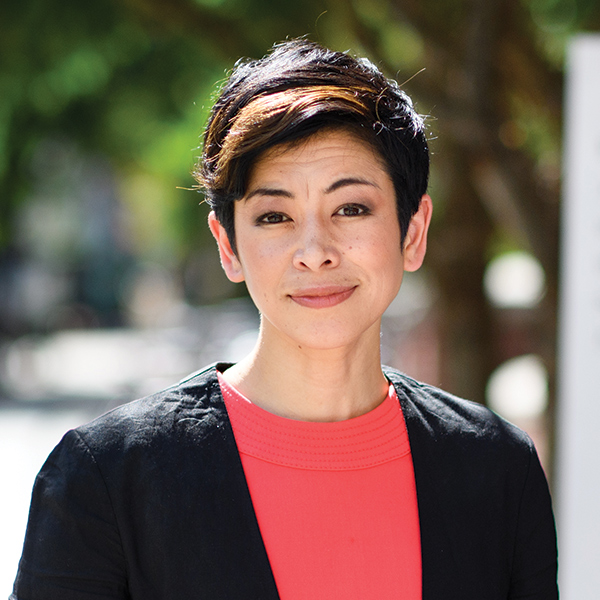
KAREN M. TANI L’07, PhD’11
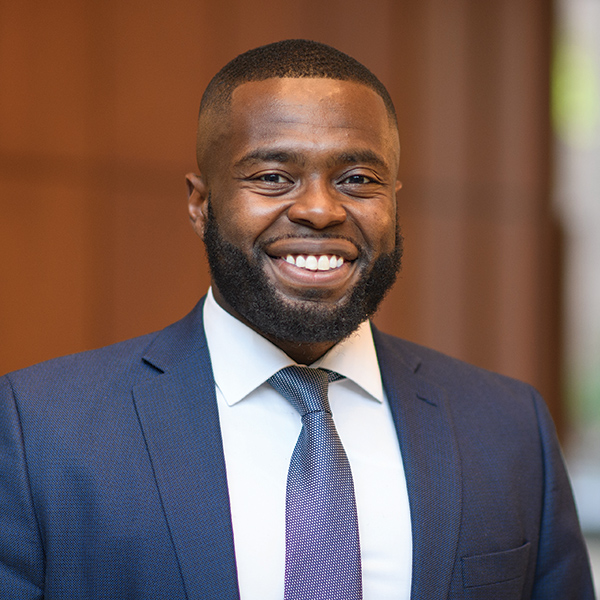
Shaun Ossei-Owusu LPS’08
Global Thought leaders

Eric A. Feldman
REGULATION & POLICY EXPERTS
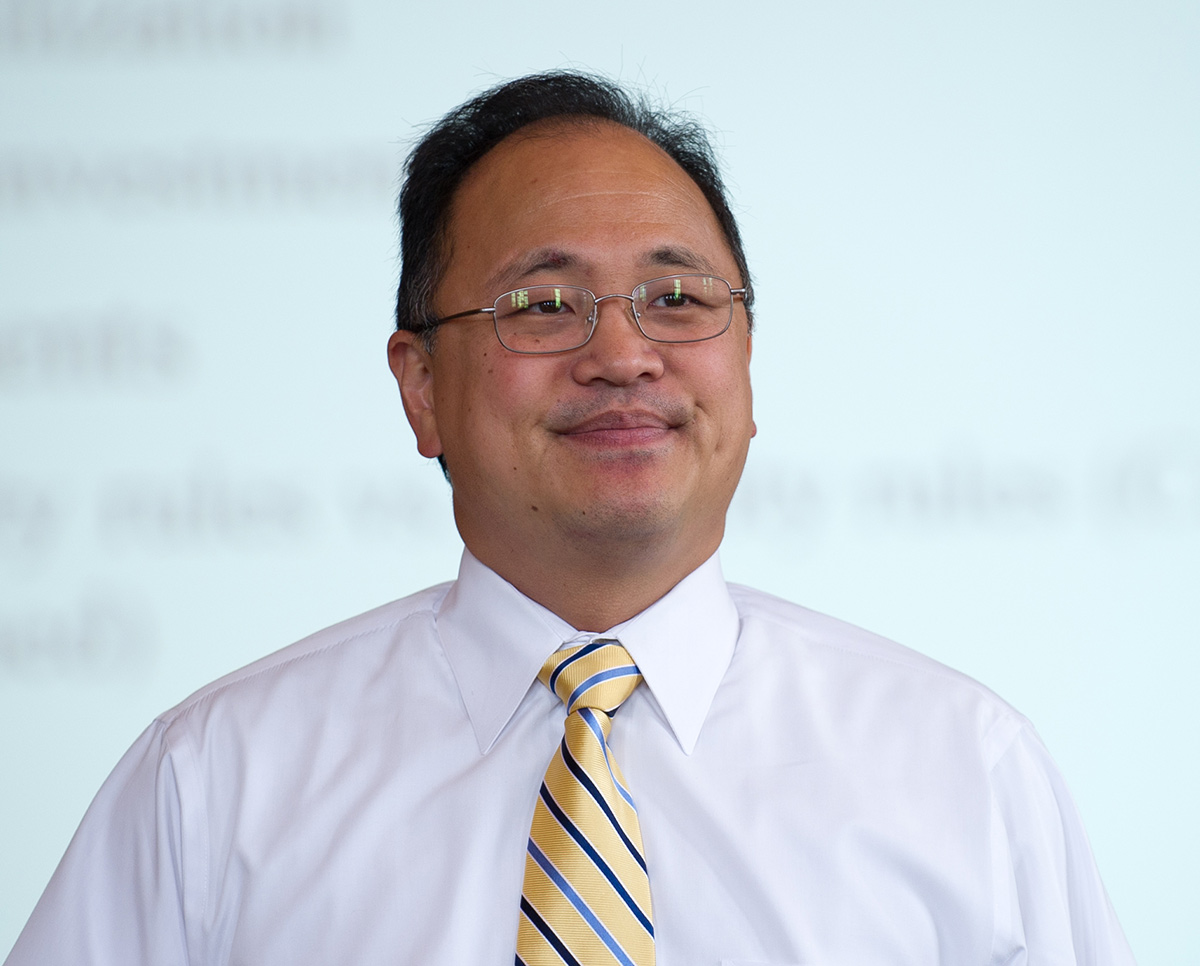
Christopher Yoo

Cary Coglianese
Our Teaching Law Firm
As lead counsel on their cases, students build relationships with diverse clients, develop essential lawyering skills, enhance their professional development, and apply their talents and creativity in a real law firm setting. Under the close supervision of experienced clinical faculty, students hone their skills in a professional environment while meeting the legal needs of underserved communities and rendering tens of thousands of hours of pro bono legal services.
Our clinics are specially designed to help you develop core lawyering competencies. They offer challenging yet rewarding learning opportunities in litigation, business structuring and transactions, child advocacy, immigration, civil rights, legislation, interdisciplinary practice, international lawyering, criminal defense, and intellectual property law.
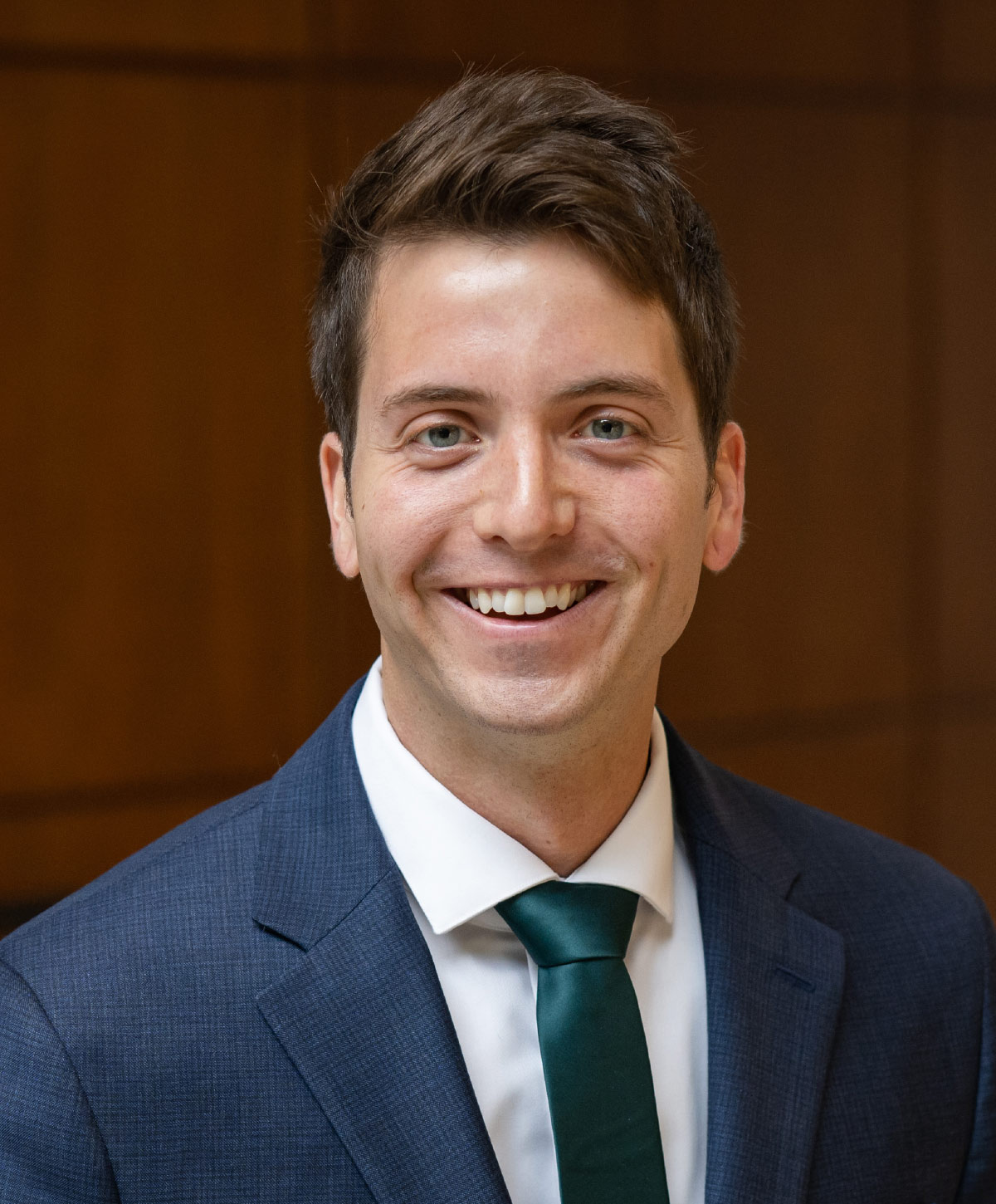
Carson Turner L’25
Recently:
ARC Justice Clinic students helped draft and file a civil rights complaint against a local school district, alleging a hostile environment for LGBTQ+ and Black students. Alongside the complaint, which urged the district to reform, students spoke to journalists to raise awareness of the case.
In the aftermath of a 2023 settlement between legal advocates and the City of Philadelphia over police use of force during racial justice protests, ARC Justice Clinic students were involved in the implementation of the Bread and Roses Community Fund’s West Philadelphia Community Fund, distributing some of the settlement’s proceeds to support equity, racial justice, organizing, and healing for people impacted by police violence. Clinic students have also been involved in follow-up efforts to ensure police transparency and accountability in West Philadelphia.
Recently:
In another successful case, students achieved the withdrawal of a five-figure lawsuit brought by a local hospital against a client who was led to believe that a necessary surgery was fully covered by insurance. Had the lawsuit succeeded, the hospital could have pursued collection of the debt through a lien on the client’s home, potentially reducing the value of her most significant family asset.
In a precedent-setting case before the Pennsylvania Supreme Court, a team of students and faculty filed an amicus curiae brief contending that the forfeiture of an elderly mother’s home and car constituted an excessive fine under the Eighth Amendment.
Recently:
They have secured exciting wins for clients, including successfully litigating motions to suppress illegally obtained evidence in felony drug cases which both protected clients’ constitutional rights and resulted in the State’s dropping of all felony charges.

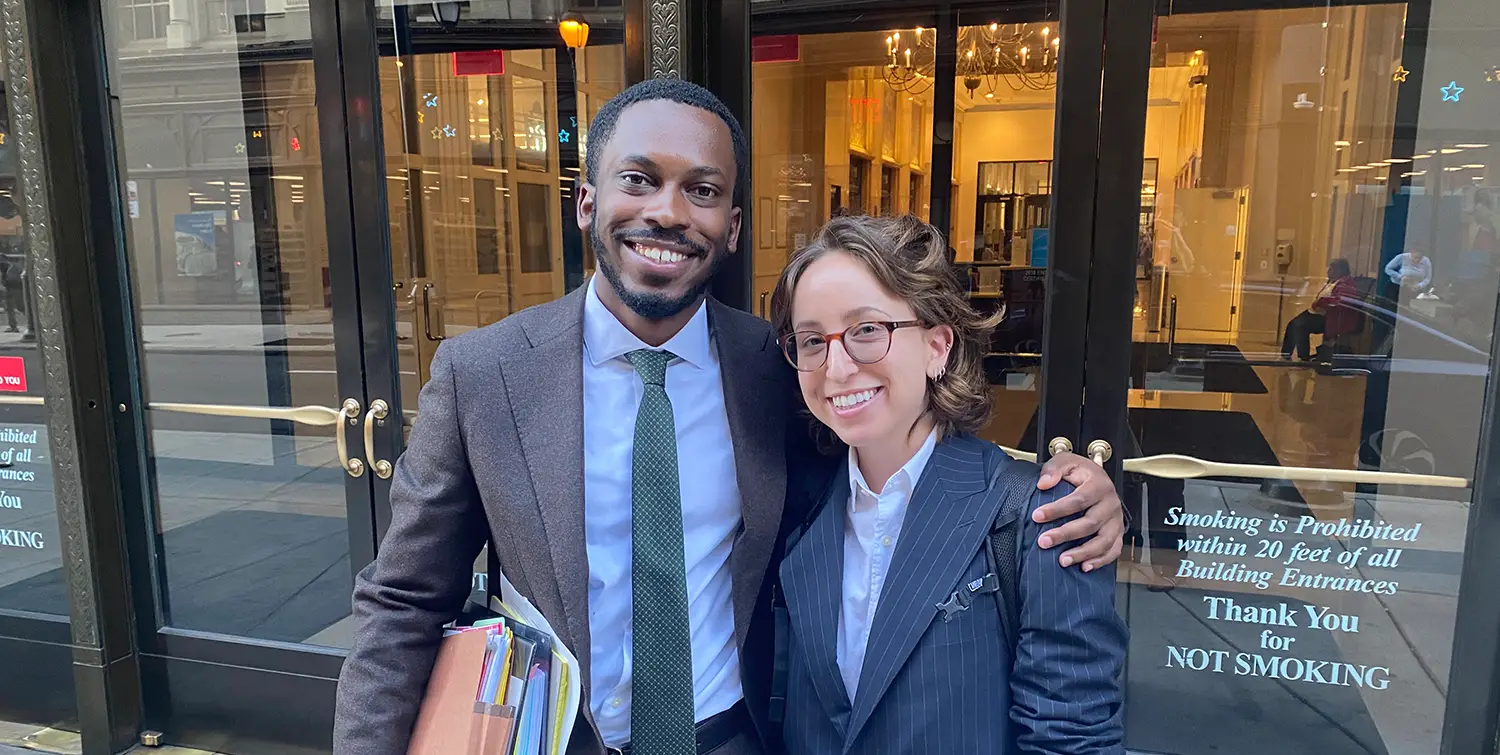
By helping a variety of clients with transactional IP issues, students practice at the intersection of law, business, technology, and the arts. The clinic has created strong collaborations with other Penn professional schools—including the Schools of Engineering and Applied Sciences, Medicine, Business [Wharton], and Arts and Sciences—to allow law students to gain an interdisciplinary perspective how best to serve clients.
Recently:
Students have also worked with clients that went on to launch successful enterprises, such as Dagne Dover and GenHERation. They advised on copyright and trademark for an author and illustrator of a series of children’s books and for another nonprofit delivering educational programming to Haitian schoolchildren.
Students also developed a protection strategy for the processes and sculptures of a women-owned glassblowing studio upcycling recycled glass.
Recently:
Other clients included:
- A microbrewery focused on employing formerly incarcerated, formerly unhoused, and other marginalized individuals
- A trade association of mobile food vendors about how to navigate and advocate for better city regulations for this industry
- A fashion business founded by a Black woman entrepreneur trying to overcome barriers to raising capital and scaling her business to compete with mainstream brands
Students also assisted with a variety of corporate governance issues, ensuring the business was on firm footing and able to develop and deploy a product to clean up and preserve the environment.
Supervised by interdisciplinary faculty, Penn Carey Law students work collaboratively with social work students from the Penn School of Social Policy and Practice to advocate for clients. Law students learn fundamental lawyering skills within the context of child and family advocacy and through the lens of a trauma-informed and client-centered service model.
Recently:
As a member of the Family Justice Partnership with Children’s Hospital of Philadelphia and Community Legal Services, the clinic provides legal services to address the social determinants of health for children and families in Philadelphia. Students partner with medical teams to identify civil legal needs that impact health.
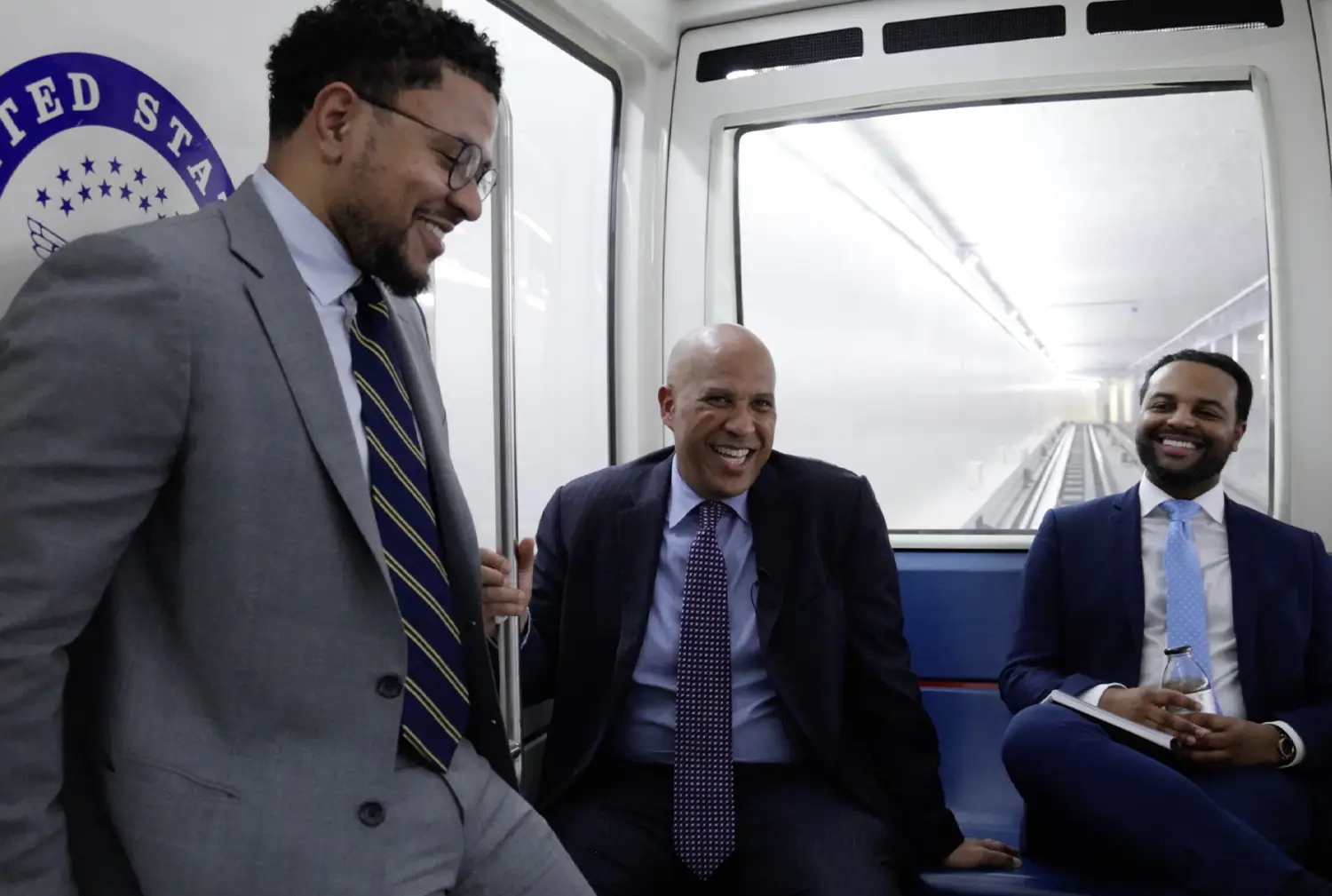

In the clinic, students learn about legislative solutions while conducting actual legislative and public policy work on issues of state and national importance. Students spend two to three days per week engaged in legislative work at chosen sites, most frequently in the U.S. Senate and House of Representatives in Washington, D.C.
Recently:
Students can also work on state and local policy issues. One student chose to work with a member of the Pennsylvania House of Representatives, for whom she conducted extensive research and analysis on redistricting reform and drafted a comprehensive redistricting bill. Another worked closely with a Philadelphia City Councilmember on critical issues such as affordable housing, community land trusts, and gun violence. A third student worked with a nonprofit advancing national policy to support renewable energy.
Recently:
Students recently secured asylum in a case involving a Honduran family of four who were forced to flee their home after credible, escalating threats of extreme violence against the parents and their children. Students have also submitted urgent action communications to UN human rights bodies to address egregious violations against immigrants held in detention centers in Georgia. Looking beyond the U.S. borders, students have aided advocates in Nepal to advance the rights of the country’s migrant workers, pursuing law reform and other initiatives during the transition to a new constitution and a federal system of government.
Study and Practice
Academic Support
During the fall of your 1L year, you’ll be invited to attend a lecture series covering essential topics such as note-taking, outlining, essay writing, exam strategies, and more. In the spring, you’ll have the opportunity to meet with Academic Support staff to create a personalized plan tailored to your needs.
Support doesn’t end after your 1L year. Throughout your time at the Law School, you’ll continue to have access to a wealth of resources to help you excel.
Our online directory includes:
- Guidance on reading and analyzing judicial opinions
- Tips for crafting effective exam responses
- Best practices for class note-taking
Additionally, you’ll have access to a library of helpful lectures on various topics, available for you to revisit anytime you need extra support.
This interactive, hands-on class engages students in deep analysis, advocacy, and problem-solving and puts their developing lawyering skills into practice. You will learn how to formulate a sustained, cogent legal argument, find the authority supporting that argument, present the argument, and counter opposing arguments.
Through a series of exercises designed to simulate actual law practice, Legal Practice Skills also exposes you to a range of other practice skills, including negotiations, contract drafting, effective oral advocacy techniques, client interviewing, incorporating generative AI tools, and other skills.
Cohorts
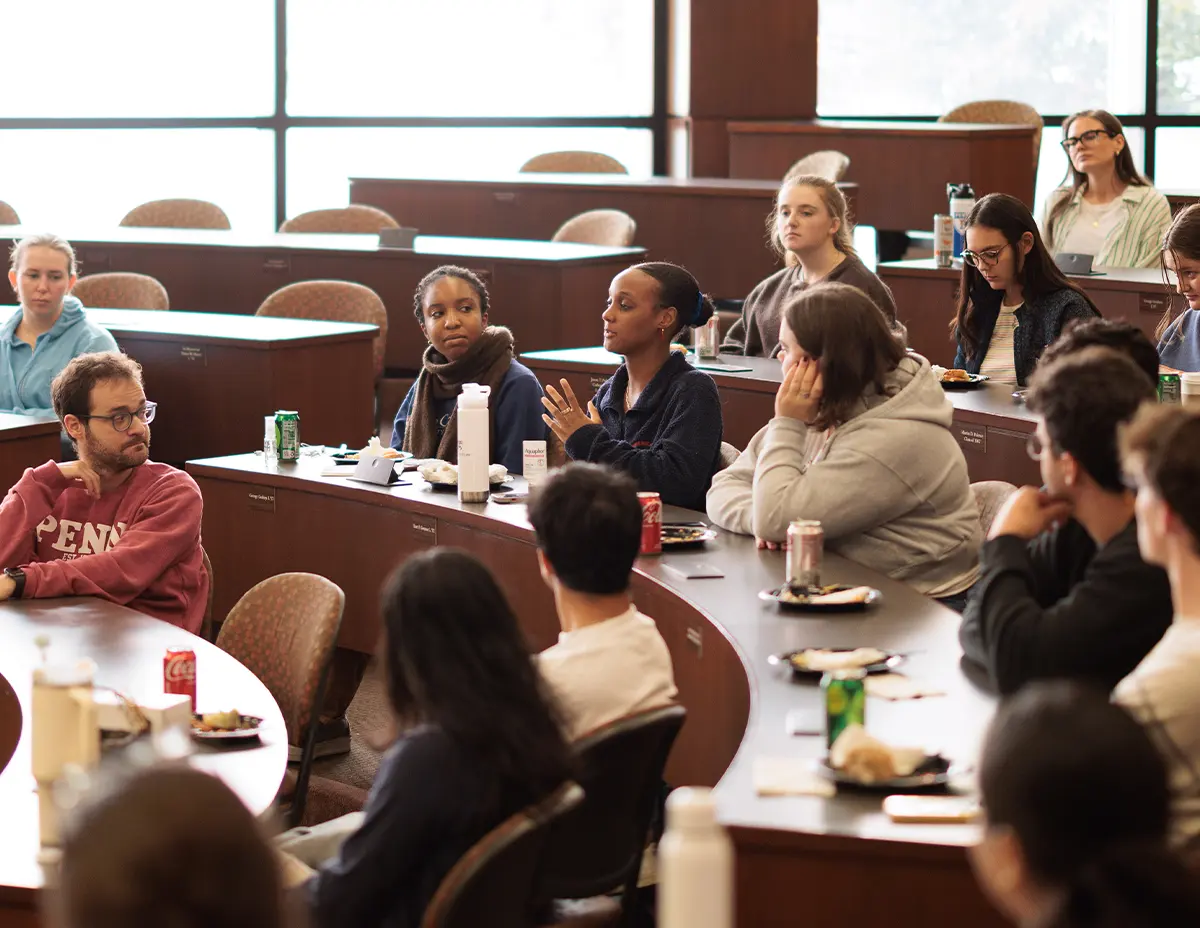

A Global
Legal Education
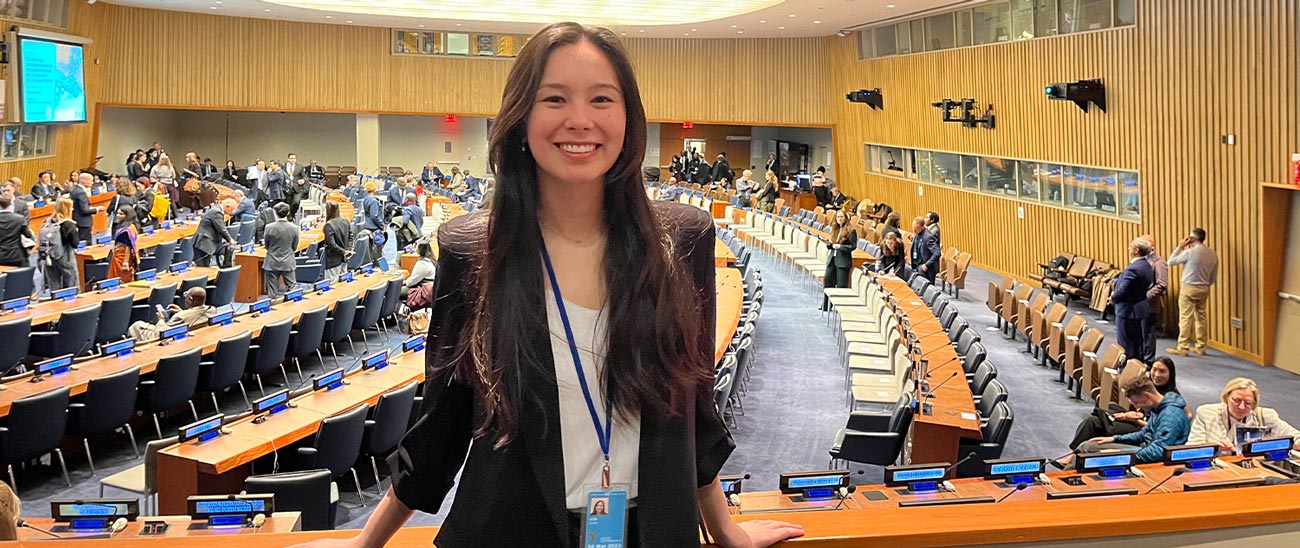

Our study abroad programs empower students to build global peer networks, expand their language and cross-cultural skills, and distinguish their resumes with demonstrated connections to an important country or region.
Penn Carey Law’s fellowship programs support students as they undertake human rights, rule-of-law development, and legal practice work in countries around the world.
Spend a semester or a year studying at a leading foreign institution to deepen your knowledge of international law.
Research and Conferences Abroad
Embark on public service trips, fact-finding missions, international moot court competitions, or other peer engagement opportunities abroad.
Global Legal Practice Fellowship (GLPF)
Explore the global nature of today’s most complex legal issues through innovative seminars that feature overseas travel with faculty to research current topics and meet international stakeholders.
For the Fall 2023 GRS, “Sustainable Development and the Global South,” students attended the UN Sustainable Development Goals Summit in New York City, then extended their knowledge of sustainable development through on-site discussion with experts in Ghana for a week during winter break.
Spend a summer overseas exploring human rights and rule-of-law issues at a multilateral organization, court, or NGO.
Spend a semester or a year studying at a leading foreign institution to deepen your knowledge of international law.
Research and Conferences Abroad
Embark on public service trips, fact-finding missions, international moot court competitions, or other peer engagement opportunities abroad.
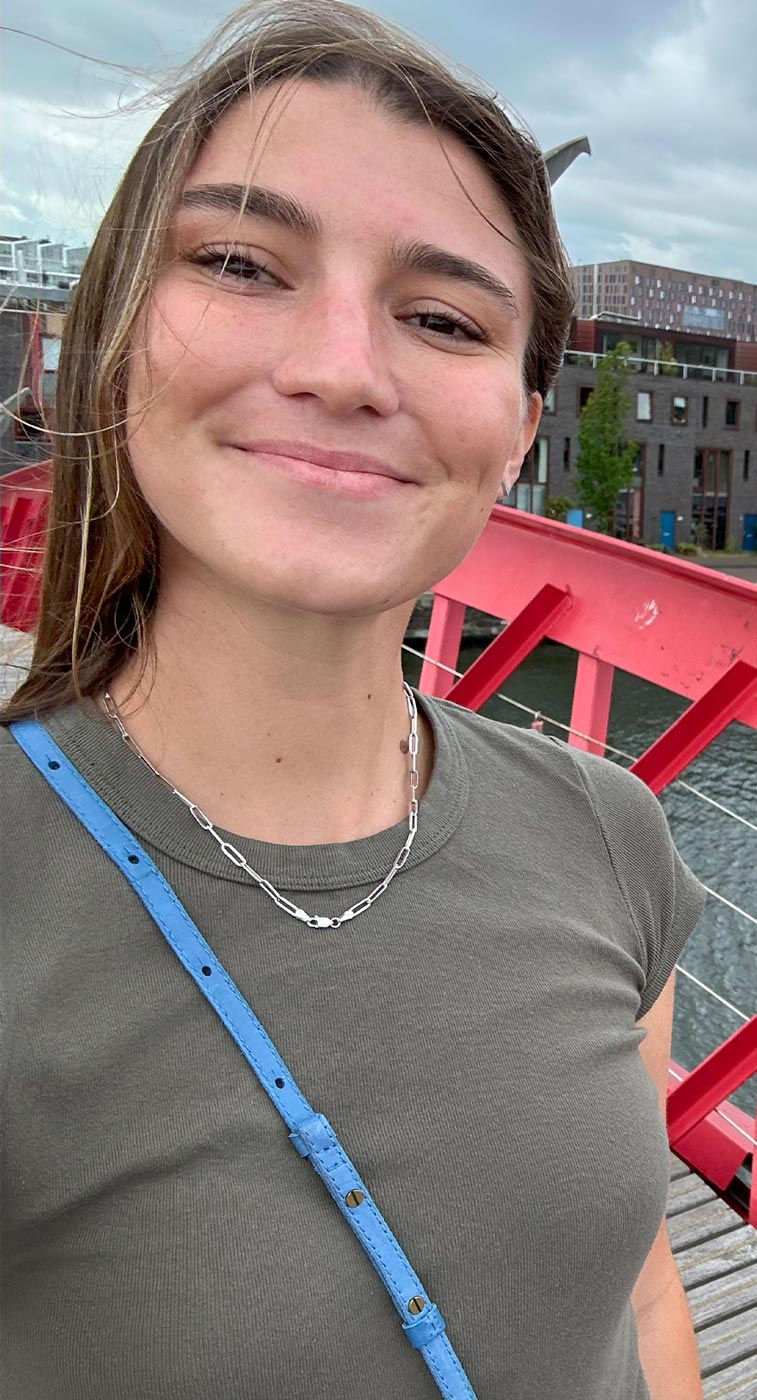
Global Legal Practice Fellowship (GLPF)
Explore the global nature of today’s most complex legal issues through innovative seminars that feature overseas travel with faculty to research current topics and meet international stakeholders.
For the Fall 2023 GRS, “Sustainable Development and the Global South,” students attended the UN Sustainable Development Goals Summit in New York City, then extended their knowledge of sustainable development through on-site discussion with experts in Ghana for a week during winter break.
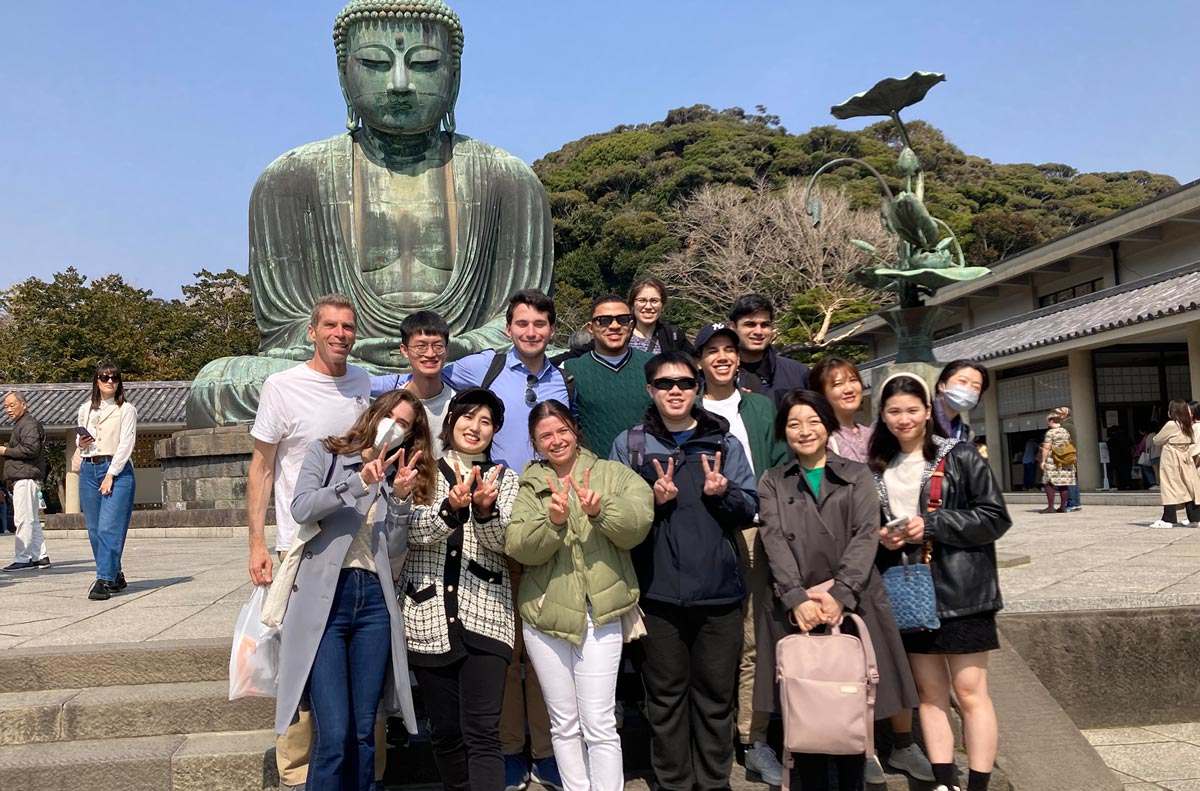
Experience The Power of
Public Service
All students perform at least 70 hours of pro bono legal service before they graduate, and over 90 percent exceed that requirement. TPIC ensures that students receive strong training, excellent supervision, and meaningful opportunities to make a positive impact locally, nationally, and globally. It’s a win-win: Students gain hands-on experience as early as their first semester of law school while helping nonprofits and government agencies serve underrepresented causes and communities.
From offsite retreats to dinners with faculty and alumni, TPIC facilitates strong community connections at Penn Carey Law and beyond thanks to a vibrant network of students and alumni. TPIC partners with the Office of Career Strategy, faculty, and alumni to offer unparalleled support for students committed to pursuing careers in the public interest. Generous funding for summer internships, postgraduate fellowships, and loan repayment helps students and graduates launch and sustain impactful careers dedicated to service.
Thanks to a historic gift from the Robert and Jane Toll Foundation, Penn Carey Law offers exceptional scholarship opportunities for students who are committed to public interest careers. TPIC also provides a wide array of service-oriented programs for all law students.
Whatever your path or passion, TPIC prepares you to integrate service into your Penn Carey Law experience, career, and professional identity as a lawyer.
pro bono service
2023-2024 academic year
pro bono work
Penn Carey Law students since 1989
environment to immigration
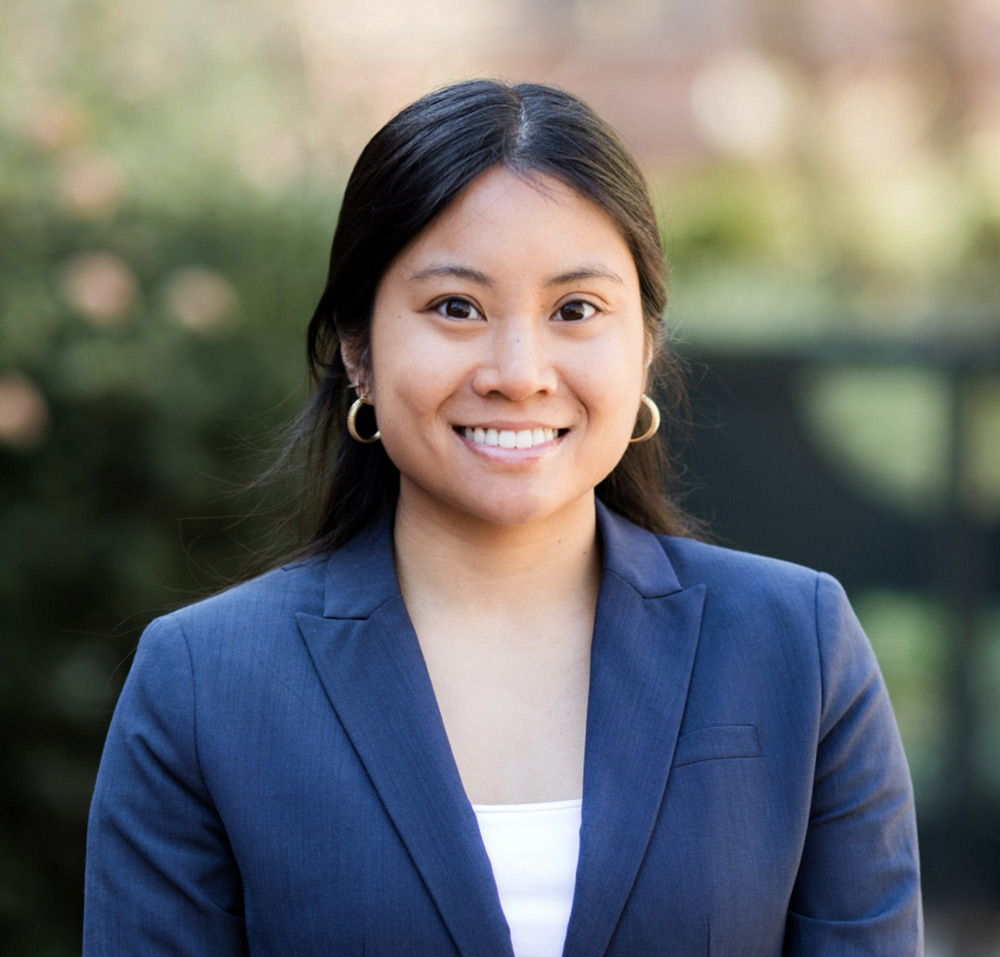
Sheila Orfano L’24
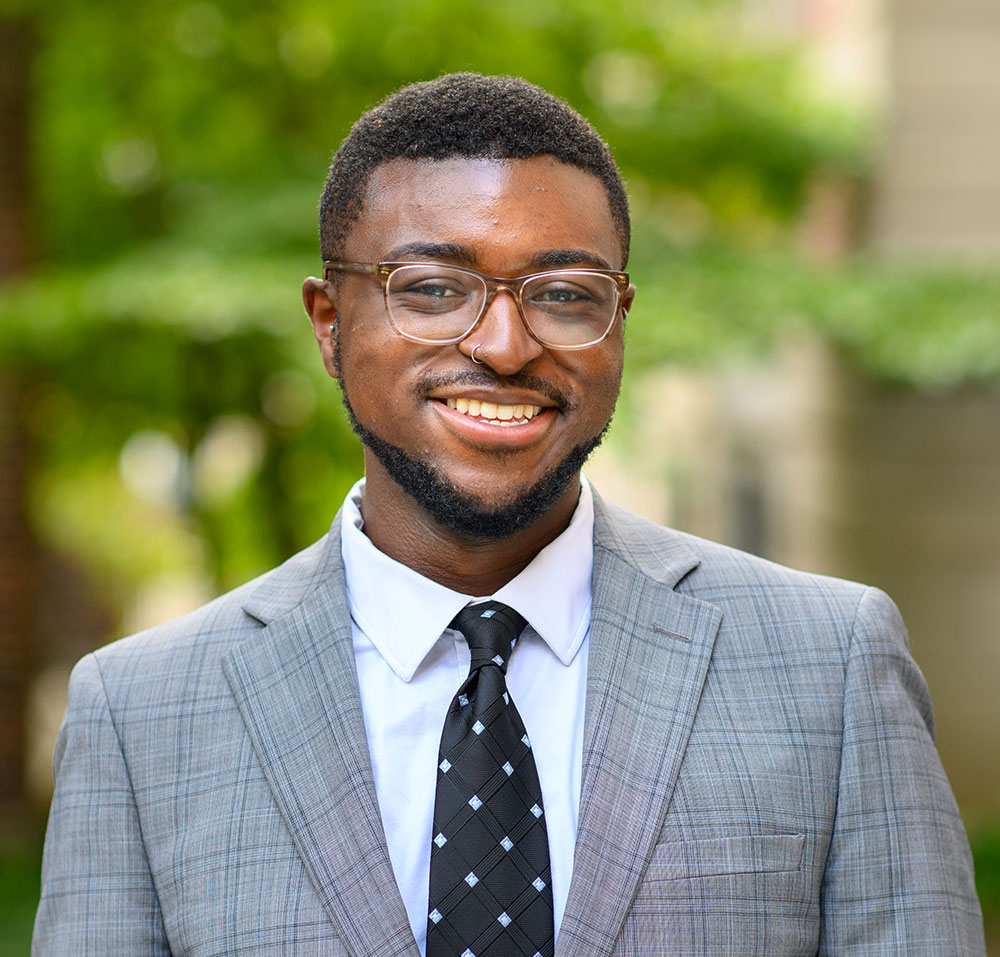
Devontae Torriente L’24
Vital Project Funds Legal Fellow, National Police Accountability Project
PRO BONO:
STUDENT-LED ADVOCACY
Animal & Environmental Advocacy
Civil & Political Rights
Criminal Justice
Criminal Record Expungement Project (C-REP)
Decarceration Advocacy Project (DAP)
Wrongful Conviction Project
Pardon Project
Youth Advocacy Project (YAP)
Economic Justice
Education
Global
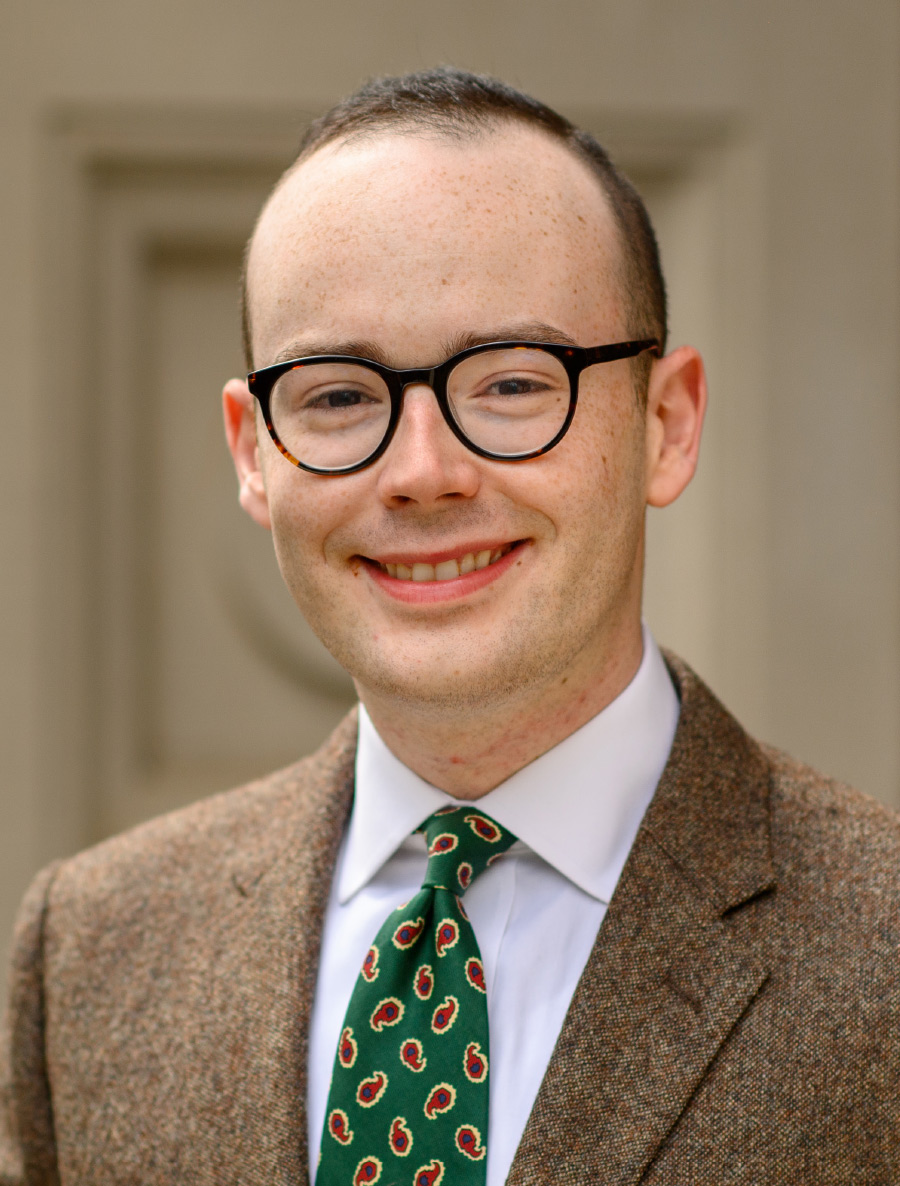
JULIAN R. LUTZ L’25, MPA’25
TRANSFORMATIVE SUPPORT
FOR PUBLIC INTEREST
The Public Interest Network
Colleagues for Life
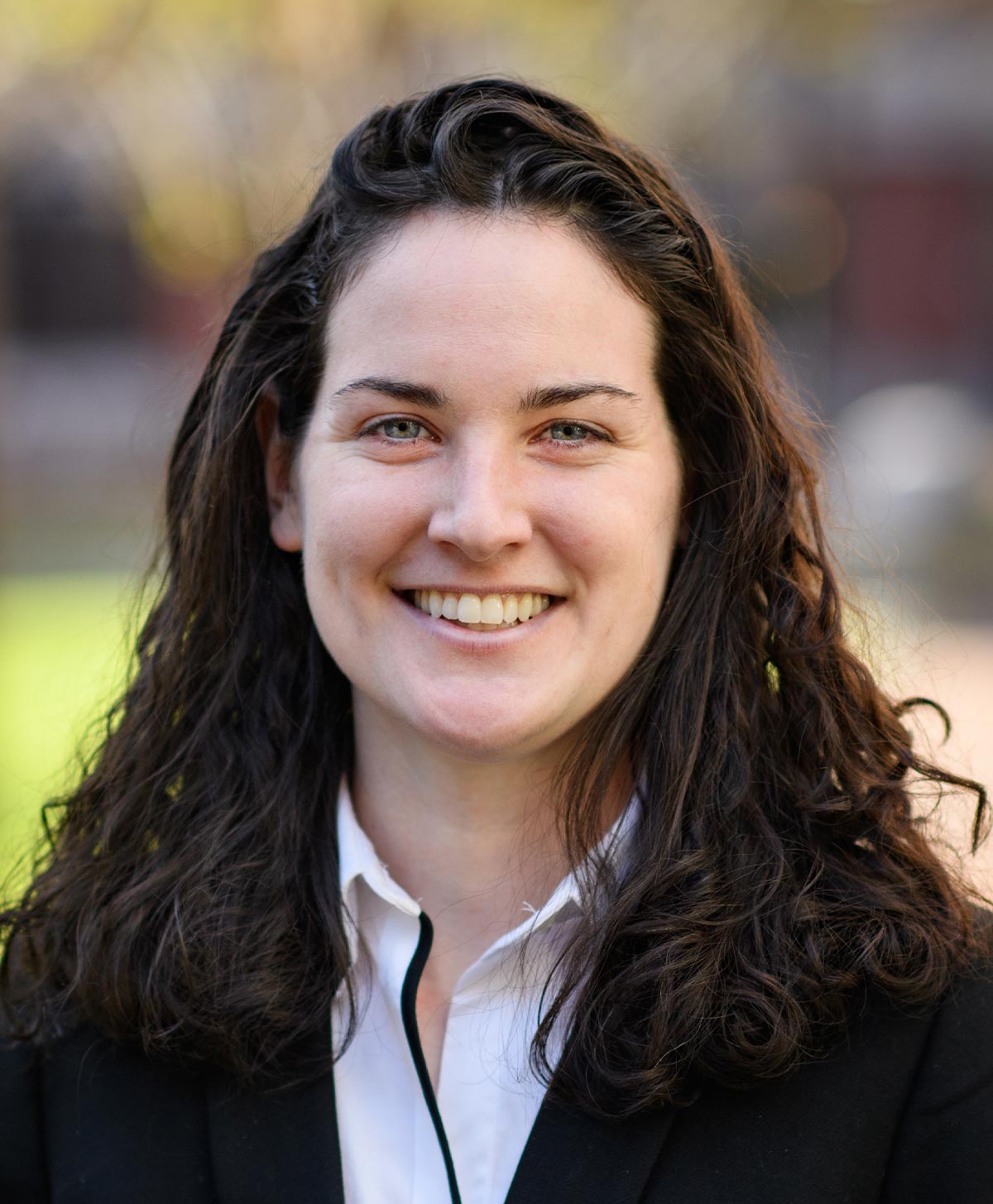
Maura Hallisey L’20
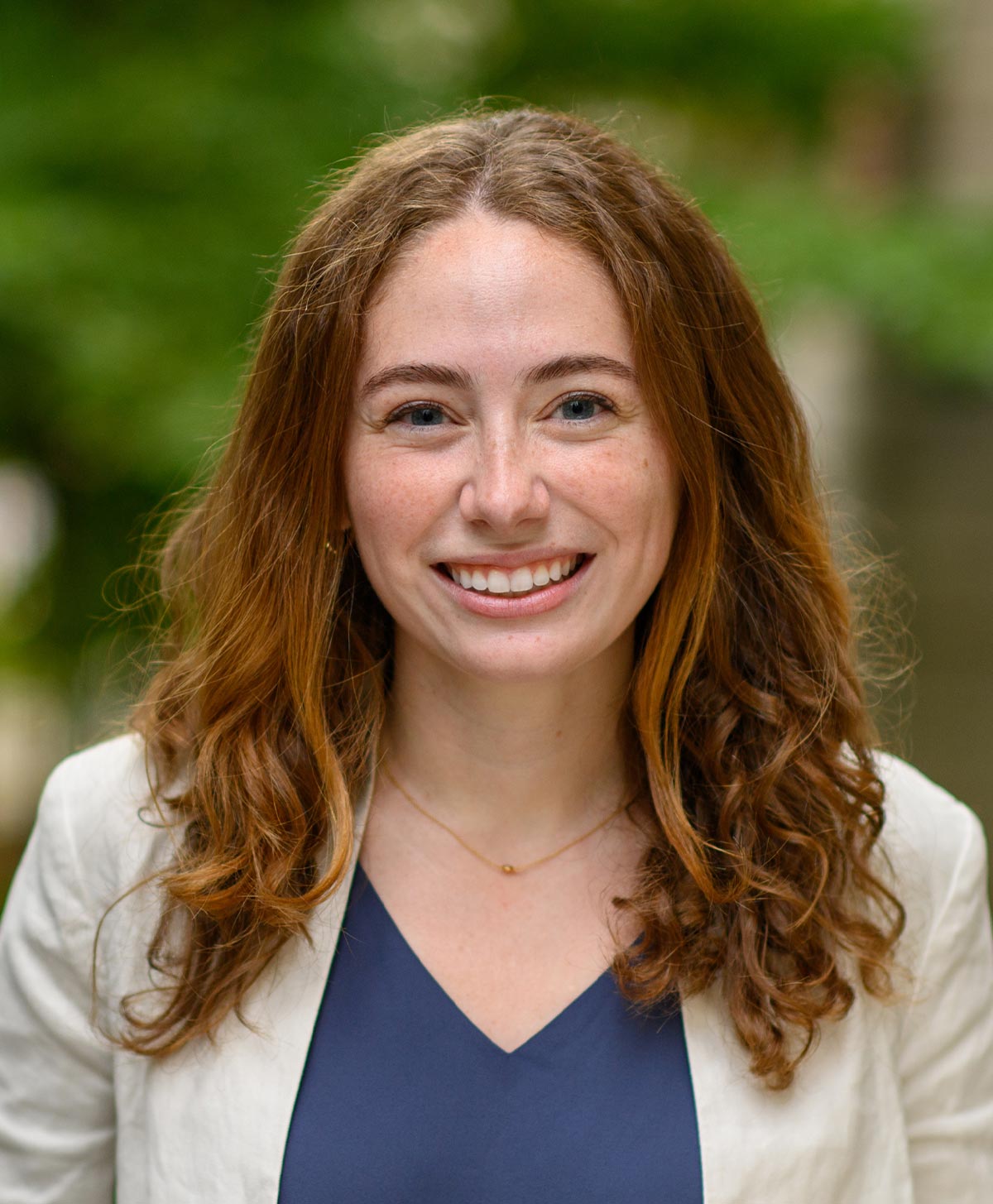
Hannah Sachs L’23
“Penn Carey Law provided me with a foundation to start my career as a public defender,” she said. “The criminal defense and civil practice clinics provided me a collaborative learning experience in a practical real-life setting where I got to experience the day-to-day challenges of a litigator and hone the advocacy and analytical thinking skills that I still use. I worked with and alongside client-partners to achieve outcomes that had immediate and tangible impacts in their lives. For example, one client sought to challenge and expunge her child abuse registry status. After a full testimonial hearing, the judge ruled in our favor, allowing our client to pursue employment opportunities she had previously been denied.”
Hannah Sachs L’23, SP2’23 is a staff attorney at Climate Jobs National Resource Center, whose mission is to educate workers and the public about policies that will build a clean energy economy at the scale climate science demands, create good union jobs, and create more equitable communities. She is dedicated to building a worker-centered renewable energy economy to ensure that we create a sustainable economy that protects our planet, while supporting the workers at the heart of the effort.
“Penn Carey Law is where I discovered my passion for work at the intersection of labor and climate law and policy,” she said. “Shelley Welton’s mentorship—and her Environmental Law course—were instrumental in building my understanding of these issues and affirmed my interest in pursuing climate and environmental policy through a social, labor, and economic lens. And, of course, the incredible opportunity that Penn Carey Law provides its students to seek out their own externships—including as I did through the Legislative Clinic—is the ideal way for students to get hands-on experience in their fields of interest.”
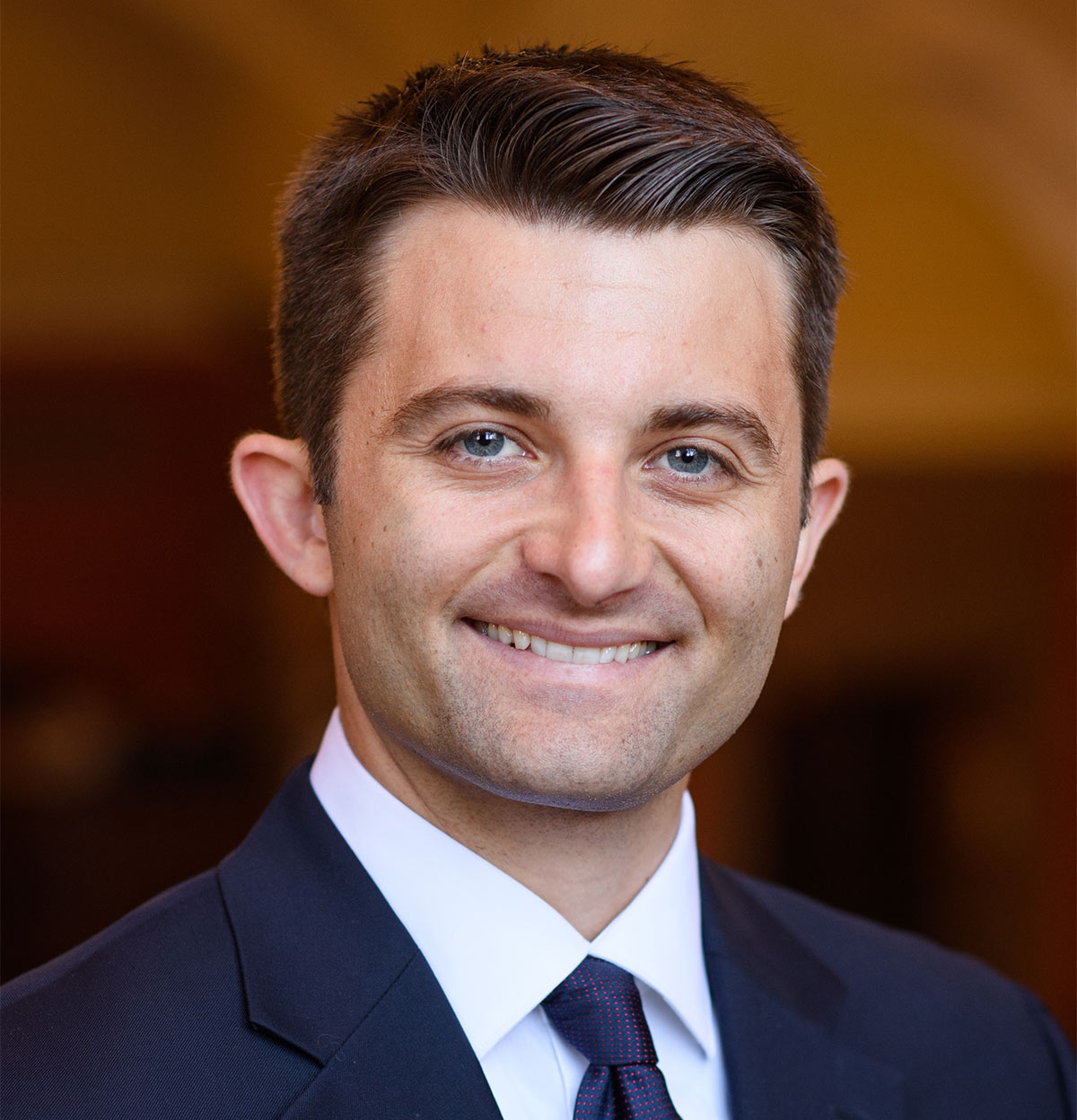
Quinn Dunkak L’22
2021 Leo Model Fellow
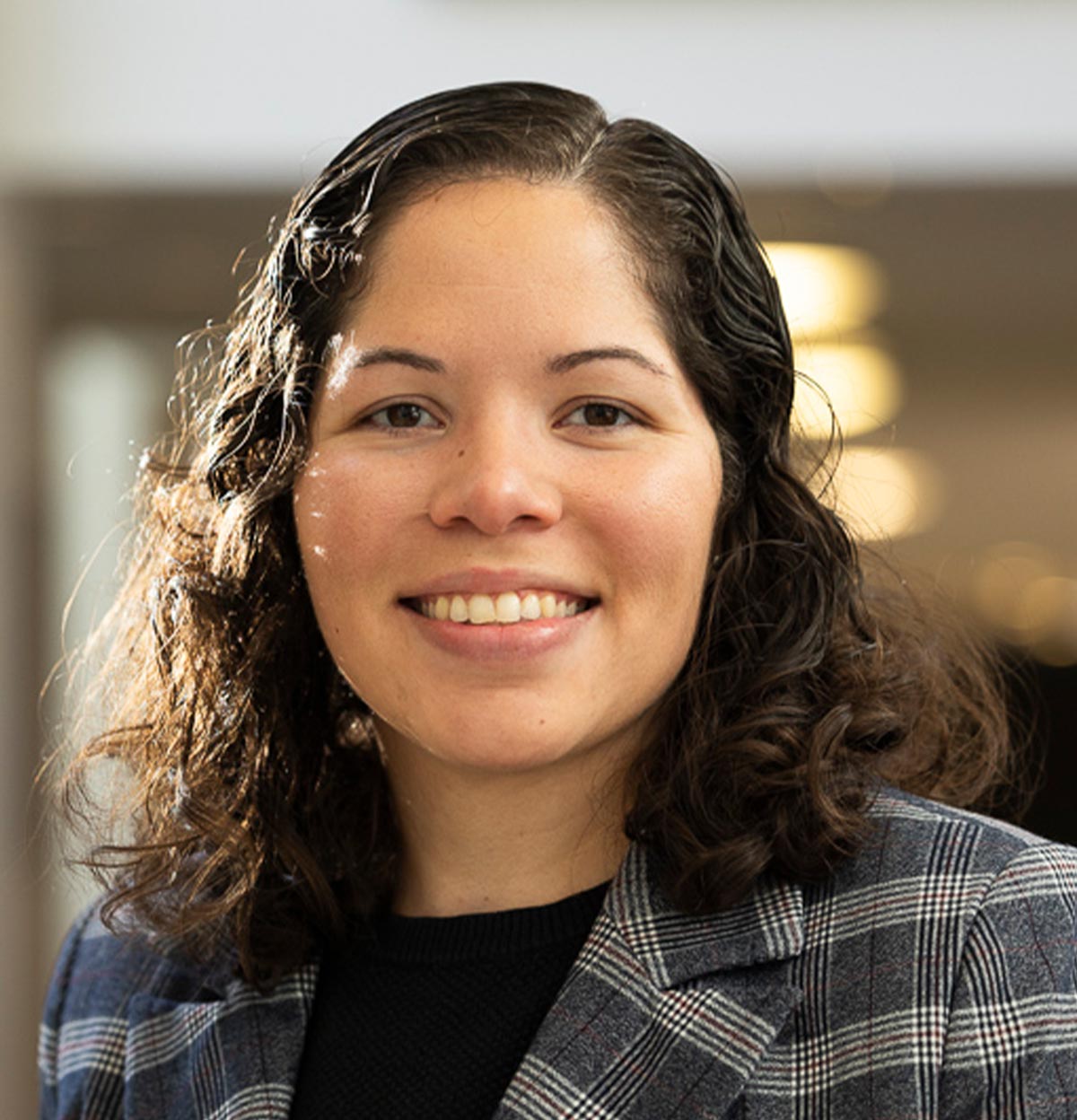
Ana Jarquin L’21
A Lasting Commitment to
Public Service Careers
TOLL PUBLIC INTEREST SCHOLARS AND FELLOWS PROGRAMS
GUARANTEED SUMMER FUNDING FOR PUBLIC SECTOR INTERNSHIPS
Each year, nearly 200 students leverage this support to achieve incredible impact. Over the last 10 years, our guaranteed summer funding program has supported students’ substantive legal work in over 1,600 unpaid public interest and government internships locally, national, and around the world.
Project-Based POSTGRADUATE FELLOWSHIPS
Recent host organizations have included:
- Community Legal Services, Philadelphia, PA
- Human Rights First, New York
- Northwest Immigrant Rights Project, Washington
- Climate Rights International, California
- Cook County Public Defender’s Office, Chicago, IL
- National Health Law Program, Washington, DC
Career Support
OCS provides a postgraduate fellowship bootcamp for students applying for national fellowships and Penn Carey Law postgraduate fellowships, as well as substantial support for government honors programs and prosecution and public defender applications.
Each year, our students secure Skadden, Equal Justice Works, and other competitive fellowships, along with impactful public interest opportunities at organizations across the country.
Catalyst Postgraduate Fellowships
SERVICE ACROSS SECTORS

Nicolle Strand MBE’12, L’13
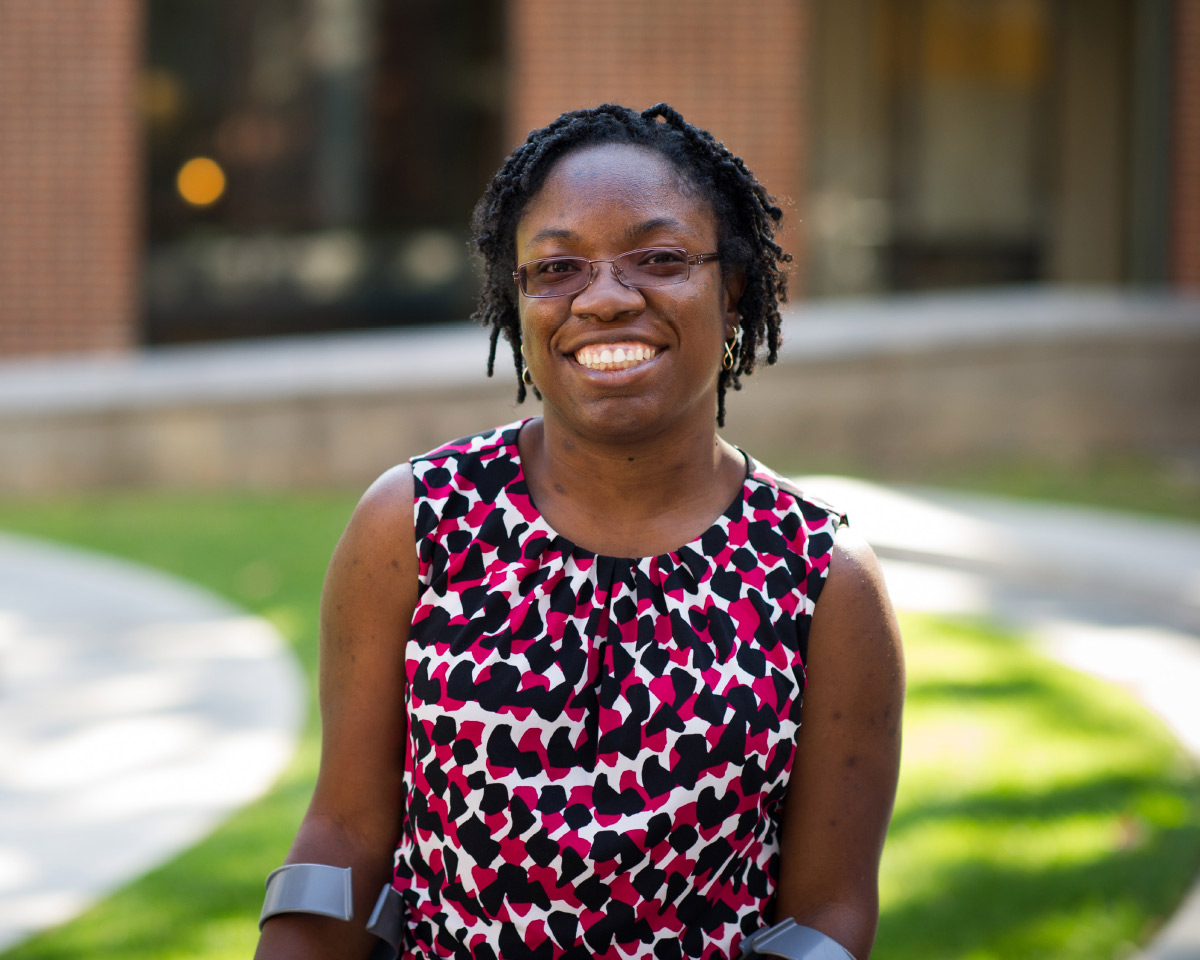
Britney Wilson L’15
After leaving the federal government, Strand returned to Philadelphia, where she is now Associate Professor for Research and an Assistant Professor at the Center for Urban Bioethics at Temple University’s Lewis Katz School of Medicine. Day to day, she works to educate health professionals on bioethics and health policy and also leads research projects on important issues like substance abuse and racial health disparities.
Strand also serves the university community outside of her teaching and research, striving to improve patient care for queer individuals as the co-chair of Temple Health’s LGBTQ Alliance Task Force and reviewing the ethics of human subject-based research as a member of Temple’s Institutional Review Board.
Afterward, Wilson completed another fellowship at the Center for Constitutional Rights, focusing on issues of discriminatory policing, abusive immigration detention practices, and voting rights before becoming a staff attorney at the National Center for Law and Economic Justice.
Today, she is Associate Professor of Law and the Director of the Civil Rights and Disability Justice Clinic at New York Law School.
“Public service is part of my daily life,” she said. “Thanks to the guidance and support of Penn Carey Law faculty and staff, I’m proud to say that I’m a public interest attorney, fighting for social justice the way I’d always envisioned.”
Thrive in
Philadelphia
We are a “City of Neighborhoods”
University City
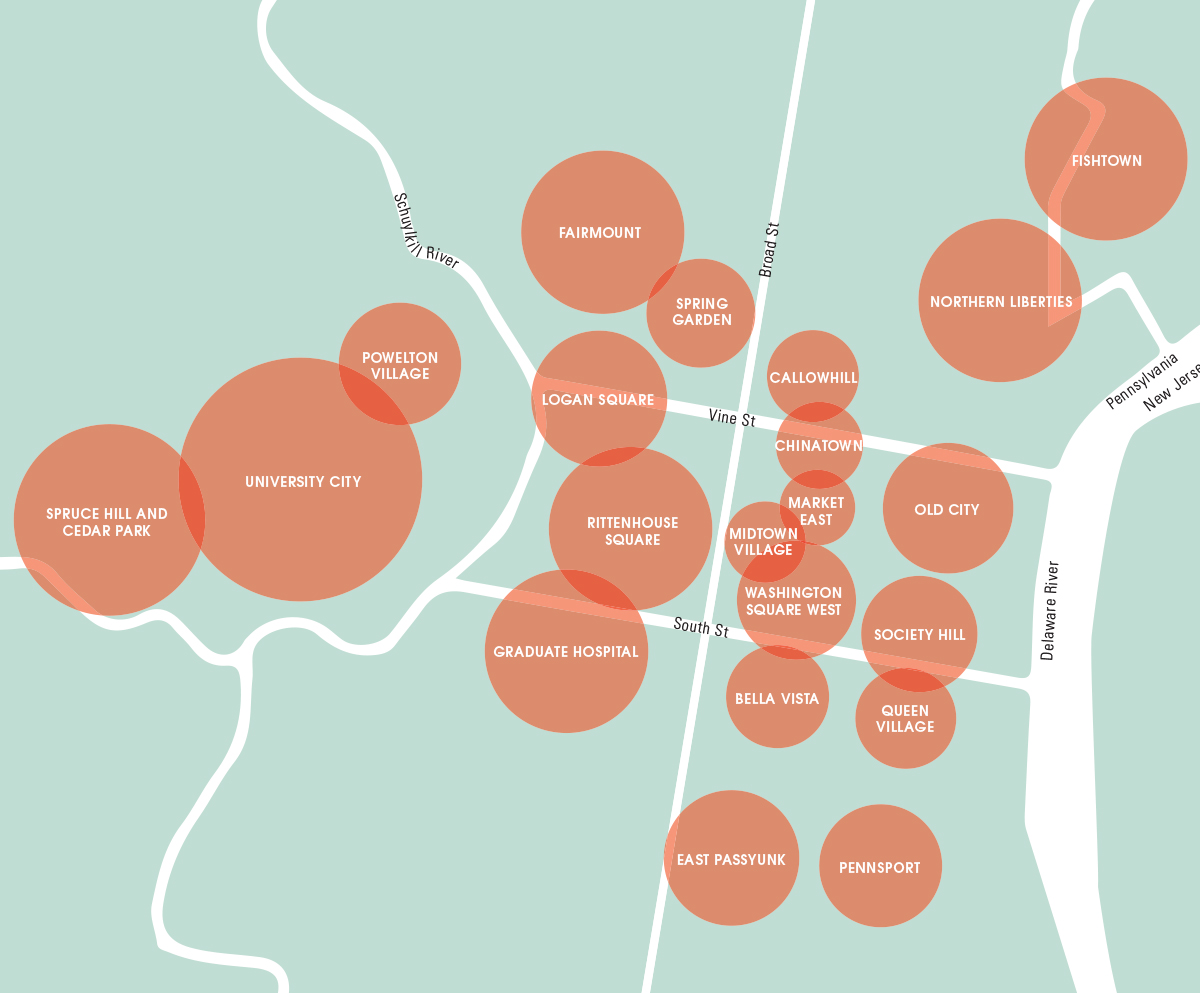
Housing Resources
Additionally, a housing guide created using current student feedback can serve as a starting point for your housing search.
Office of Off-Campus Services
When you are in town, you can use the office as your base for your housing search. The user-friendly office has computer terminals for your searches and telephones to call and set up appointments.
For more information
Housing Resources
Additionally, a housing guide created using current student feedback can serve as a starting point for your housing search.
Office of Off-Campus Services
When you are in town, you can use the office as your base for your housing search. The user-friendly office has computer terminals for your searches and telephones to call and set up appointments.
For more information
ENJOY EVERYTHING PHILLY HAS TO OFFER
PHILADELPHIA IS ALSO A GREAT PLACE TO PLAY
Philadelphia is one of the world’s most exciting cities—which may be why National Geographic named Philadelphia the “Next Great City” in the past and one of the best trips to take in 2024. Whether you’re here for three years or the rest of your life, make sure to take advantage of everything the city has to offer.
GETTING AROUND
For more information, visit Penn Transportation, Parking, and Commuting website.
Biking
We recommend investing in a helmet and high-quality U-lock to protect your bike. You can also register your bike with Penn Police which will increase the chances of recovery should your bike ever be lost or stolen. Campus Express is your one-stop shop for many important student services, including registering your bike.
Taxis, LYFT, & UBER
SEPTA (SUBWAY/TROLLEY & BUSES)
For more information about public transportation, see SEPTA’s website.
CAR-SHARING SERVICES
PENN BUS & SHUTTLE SERVICES (FREE!)
Penn Bus East and Penn Bus West are evening bus services that operate on a fixed schedule and established route. They do not deviate from that route but will pick up and deliver passengers at designated stops on campus and at any corner off-campus along the route. For more information and schedules, please visit Penn Buses website.
LUCY (FREE!)
TRIPS OUT OF TOWN
AMTRAK
PHILADELPHIA Megabus, Greyhound, FlixBus and Peter Pan
SEPTA COMMUTER TRAINS
PATCO

Health and Wellness
Where can I work out?
GYMS
Fox Fitness is at 219 S. 33rd Street and contains a fitness center, squash courts, and lockers. More details about amenities, classes, and memberships are available at Penn Campus Recreation.
Located at 3701 Walnut Street in Penn Park, Hamlin Tennis Courts are open daily and have great views of the city.
Penn Squash Center is at 219 S. 33rd Street, across from Penn Park. These courts are run separately from the gym and fitness complex and require separate membership.
Outdoor running and biking
Student fitness groups
University services
Counseling and Psychological Services (CAPS)
Wellness at University of Pennsylvania
Law School services
Mental Health
Wellness Programming
The Clinton/Parker Wellness Suite
The Clinton/Parker Wellness Suite is named after two beloved members of the Penn Carey Law community who made student well-being the cornerstone of their work in the Law School. In 2017, the Dean of Students, Gary Clinton, was due to retire and the graduating JD class wanted to pay homage to him by naming the Wellness Suite after him. That same year, when the Associate Dean for Graduate Programs, Matthew Parker L’00, GEd’15 passed away, the LLM Class took up a contribution to add his name to the suite. The Clinton/Parker Wellness Suite recognizes the energy Clinton and Parker dedicated to student welfare by providing a space for students to give attention to their own well-being. You will find the Clinton/Parker Wellness Suite on the Law School campus in the Silverman Ground Floor.
JD Curriculum
COURSE LISTING
ADMINISTRATIVE LAW AND Regulatory Law
Administrative Law
Advanced Administrative Law
Advanced Antitrust and Private Enforcement
Advanced Regulatory Law and Policy
Advocacy for Racial and Civil Justice Clinic
Antitrust
Antitrust: Mergers, IP, and Vertical Restraints
Art and Cultural Heritage Law
Bankruptcy
Civil Practice Clinic
Constitutional Litigation
Gaming Law
Health, Disability, and Justice
Empirical Social Science Research and the Law
Employment Arbitration Bootcamp
Energy Law and Climate Change
Environmental Enforcement
Financial Regulation
First Amendment in the 21st Century
Health Care Fraud: Investigation and Prosecution
Health Law and Policy
International Trade Regulation
Internet Law
Intro to Law and Economics
Labor Law
Land Use Law
Law and Candidacy
Legislation and Regulation
Local Government Law
Money Laundering
Pharmaceutical Regulation and Enforcement
Public Corruption and the Law
Public Health Law
Regulating Police
Regulatory Law and Policy
Remedies
SEC Enforcement
Securities Regulation
Space Law and Policy
Sports as Legal Systems
Torts
BUSINESS AND TRANSACTIONAL LAW
Advanced Legal Research II: Transactional
Advanced Fundamentals for Corporate Lawyers
Advanced Regulatory Law and Policy
Alternative Investment
Antitrust
Bankruptcy
Blockchain and the Law
Broker-Dealer Regulation
Business Management for Lawyers
Commercial Finance
Conflict of Laws
Consumer Law
Contract Drafting
Contracts
Corporate Finance
Corporate Governance, Ethics, and Compliance
Corporate and M&A Litigation
Corporate Reorganization
Corporate Restructuring
Corporate Taxation
Corporations
Cross-Border M&A
Dealmaking and Strategy for a Changing Climate
Deals: Economic Structure of Transactions & Contracting
Empirical Approaches to Contract Law
Entertainment Law Transactions
Entrepreneurship Legal Clinic
Developments in Public Corporation ESG Initiatives
Federal Income Tax
Finance, Economics, and the Law of Fiscal Crises
Financial Regulation
Generative AI in Corporate Law
In-House Counsel/Corporate Generalist
International Bankruptcy
International Business Negotiations
International Business Transactions
International Law
Islamic Finance
Land Use Law
Law and Economics
Law and Economics of the Firm
Legal Drafting for Investment Management
Literature, Law and Financial Distress
M&A Bootcamp
M&A Litigation Seminar
M&A Through the Business Cycle
M&A Transactions and the Role of Governments Bootcamp
Mergers and Acquisitions
Money Laundering
Negotiating and Drafting for M&A in Entertainment
Partnership Tax
Private Investment Funds
Real Estate Finance
Regulatory Law and Policy
SEC Enforcement
Securities Bootcamp
Securities Regulation: Law and Policy
Shareholder Rights
Startup and Venture Capital
Strategic Transactions in the Fashion & Retail Industry
Structured Finance and Securitization
Trade Secrets
Transactional Drafting
Transactional Drafting Bootcamp
Transactional Practice: Joint Ventures
VC Bootcamp
White Collar Crime
CLINICAL and PRACTITIONER SKILLS
Advanced Legal Research II: Human Rights
Advanced Legal Research II: International
Advanced Legal Research II: Litigation Research
Advanced Legal Research II: Transactional Corporate
Advanced Persuasive Legal Writing
Advanced Writing: Federal Litigation
Advocacy for Racial and Civil Justice Clinic
Amicus Advocacy
Appellate Advocacy Preliminary Competition
Army War College: International Strategic Negotiations
Business Management for Lawyers
Civil Practice Clinic
Contract Drafting
Criminal Defense Clinic
Data Literacy for Lawyers
Death Penalty in U.S.: Theory & Practice
Detkin Intellectual Property & Technology Legal Clinic
Discovery Methods
Entrepreneurship Legal Clinic
In-House Counsel/Corporate Generalist
Innovation in Practice
Interdisciplinary Child Advocacy Clinic
Legal Communication Workshop
Legal Interviewing and Client Counseling
Legal Practice Skills
Legislative Clinic
Litigation-Alternative Victim Compensation Programs
Litigating as a Junior Associate
M&A Transactions and the Role of Governments Bootcamp
Negotiations Bootcamp
Public Speaking for Lawyers
Remedies
Strategic Transactions in the Fashion & Retail Industry
Thinking Like a Litigator
Trade Secrets
Transnational Legal Clinic
Trial Advocacy
Venture Capital Bootcamp
Writing for Practice
CONSTITUTIONAL LAW, CIVIL RIGHTS, AND CIVIL LIBERTIES
Administrative Law
Advanced Regulatory Law and Policy
Advocacy for Racial and Civil Justice Clinic
AI and Civil Justice Lab
AI, Legal Technology and the Justice Gap Lab
Amicus Advocacy
Antidiscrimination Law
Appellate Advocacy
Comparative Constitutional Law
Conflict of Laws
Conservative and Libertarian Policy and Law
Constitutional Criminal Procedure
Constitutional Law
Constitutional Litigation
Conviction Integrity: Errors in Criminal Justice
Cybercrime
Death Penalty in U.S.: Theory & Practice
Discrimination in Education
Election Law
Empirical Social Science Research and the Law
Employment Discrimination
Equal Protection and the Law
Family Law
Federal Courts
Federal Indian Law
First Amendment
First Amendment in the 21st Century
Health, Disability, and Justice
Higher Education Law and Policy
History of Privacy and the Law
Immigration Law
Judicial Decision-Making
Juvenile Justice Seminar
Land Use Law
Law and Sexuality
Local Government Law
Mental Health Law
National Security Law
Political Philosophy of the Founders
Public Corruption and the Law
Race and the Law
Regulating Police
Regulatory Law and Policy
Remedies
Reproductive Rights and Justice
Social Media Law
State Constitutional Law
Strategic Lawyering for Social Justice
Thinking Like a Litigator
Voting Rights
COURTS AND THE ADMINISTRATION OF JUSTICE
Advanced Writing & Practice: Federal Civil Litigation
Advanced Problems in Federal Procedure
Advanced Regulatory Law and Policy
Advocacy for Racial and Civil Justice Clinic
Amicus Advocacy
Appellate Advocacy
Bankruptcy
Civil Practice Clinic
Civil Procedure
Commercial Finance
Complex Litigation
Conservative Political and Legal Thought
Constitutional Criminal Procedure
Constitutional Litigation
Criminal Defense Clinic
Criminal Justice Reform
Criminal Law
Criminal Procedure: Prosecution and Adjudication
Cybercrime
Death Penalty in U.S.: Theory & Practice Discrimination in Education
Evidence
Federal Courts
Federal Prosecution in Practice
Insurance Law and Policy
Interdisciplinary Child Advocacy Clinic
International Business Transactions
International Law
Judicial Decision-Making
Juvenile Justice Seminar
Law Reform Litigation
Legislation
Legislative Clinic
Litigation-Alternative Victim Compensation Programs
Litigation Finance
Litigation for Social Change
Private Action: Antitrust, RICO, & the Class Action
Race, Law, and Resistance
Recurring Issues in Complex Litigation
Refugee Law
Remedies
Remedies and Litigation Strategy
SEC Enforcement
Strategic Lawyering for Social Justice
The Supreme Court
Torts
Transnational Legal Clinic
Trial Advocacy
CRIMINAL LAW AND PROCEDURE
Appellate Advocacy
Constitutional Criminal Procedure
Conviction Integrity
Corruption, Fraud, and Corporate Crimes
Criminal Defense Clinic
Criminal Justice Reform
Criminal Law
Criminal Law Foundations and Policy
Criminal Procedure: Prosecution and Adjudication
Cybercrime
Crimmigration
Death Penalty in U.S.: Theory & Practice
Empirical Social Science Research and the Law
Evidence
Federal Habeas Corpus
Freedom, Responsibility and Neuroscience
Health Care Fraud: Investigation and Prosecution
Intro to Law and Economics
Investigating and Prosecuting National Security Matters
Juvenile Justice Seminar
Law of Investigations
National Security Law
Policing and Policy Reform in the 21st Century
Public Corruption and the Law
Sentencing
Trade Secrets
White Collar Crime
EMPLOYMENT LAW AND EMPLOYEE BENEFITS
Employee Benefits
Employment Arbitration Bootcamp
Employment Discrimination
Employment Law
Federal Income Taxation
In-House Counsel/Corporate Generalist
Intro to Law and Economics
Just Transition Law and Lawyering
Labor Law
Regulatory Law and Policy
Remedies
Social Media Law
Social Welfare Law
ENVIRONMENTAL AND NATURAL RESOURCE LAW
Advanced Regulatory Law and Policy
Animal Law and Ethics
Dealmaking and Strategy for a Changing Climate
Energy Law and Climate Change
Environmental Enforcement
International Climate Change
Land Use Law
Law and Economics
Developments in Public Corporation ESG Initiatives
Regulatory Law and Policy
EQUITY, DIVERSITY AND INCLUSION
Advocacy for Racial and Civil Justice Clinic
AI and Civil Justice Lab
AI, Legal Technology and the Justice Gap Lab
Constitutional Criminal Procedure
Discrimination in Education
Diversity and Inclusion in the Legal Profession
Employment Discrimination
Equity & Justice Lab: Public Interest Capstone
Family Law
Gender and the Law
Immigration Law
Land Use Law
Law and Candidacy
Law and Inequality
Law and Sexuality
Law, Technology, and Access to Justice
Leading Social Change
Litigation for Social Change
Local Government Law
Policy Lab: AI and Implicit Bias
Power, Injustice, and Change in America
Race and the Law
Race, Law, and Resistance
Strategic Lawyering for Social Justice
Women, Law, and Leadership
Family Law
Anatomy of a Divorce
Family Law
Federal Income Taxation
Interdisciplinary Child Advocacy Clinic
Intro to Law and Economics
Juvenile Justice Seminar
Reproductive Rights and Justice
Social Welfare Law
Health Law
Animal Law and Ethics
Comparative Health Systems and Law
Drug Prices, Patents, and Politics
Drug Product Liability Litigation
Empirical Social Science Research and the Law
Federal Income Taxation
Health Care Financing
Health Care Fraud: Investigation and Prosecution
Health, Disability, and Justice
Health Law and Policy
Health Policy Regulation and Reform
Intellectual Property and National Economic Value Creation
Interdisciplinary Child Advocacy Clinic
Mental Health Law
Patent Law
Pharmaceutical Regulation and Enforcement
Plagues, Pandemics, and Public Health
Public Health Law
Regulatory Law and Policy
Reproductive Rights and Justice
Social Welfare Law
Torts
Intellectual Property and Technology Law
Advanced Topics in Technology and Policy
Art and Cultural Heritage Law
Blockchain and the Law
Copyright
Cultural Heritage & the Law
Cybercrime
Detkin Intellectual Property & Technology Legal Clinic
Entrepreneurship Legal Clinic
Federal Income Taxation
First Amendment in the 21st Century
Intellectual Property & Corporate Lawyering
Intellectual Property Transactions
Intellectual Property and National Economic Value Creation
Internet Law
Intro to Intellectual Property Law and Policy
Intro to Law and Economics
Law of Autonomous Vehicles
Law, Technology, and Access to Justice
Lawyering and Technology
Patent Law
Patent Law – Appellate Advocacy
Patent Litigation
Policy Lab: AI and Implicit Bias
Privacy Law
Regulatory Law and Policy
Social Media Law
Space Law and Policy
Strategic Transactions in the Fashion & Retail Industry
Trade Secrets
Trademarks
INTERNATIONAL CORPORATE AND TRADE LAW
Corporate Governance, Ethics, and Compliance
Cross-Border M&A
European Union Law
Federal Income Taxation
Foreign Relations Law
Global Litigation
History of International Investment Law
International Bankruptcy
International Business Negotiations
International Law
International Trade Regulation
Intro to Law and Economics
Litigation for Social Change
Space Law and Policy
Trade Secrets
Transnational Legal Clinic
INTERNATIONAL LAW, HUMAN RIGHTS, AND IMMIGRATION
Advanced Legal Research II: International
Army War College: International Strategic Negotiations
Borders and Boundaries in International Relations
Chinese Law
Comparative Corporate Governance
Crimmigration
European Union Law
Foreign Relations Law
Global Legal Change
Global Litigation
Immigration Law
Intellectual Property and National Economic
Value Creation
Interdisciplinary Child Advocacy Clinic
International Arbitration
International Business Transactions
International Human Rights and National Security
International Human Rights: Current Topics
International Law
International Law and International Relations
International Privacy Law
International Trade Regulation
International Women’s Rights
International Women’s Human Rights
Jewish Law
Law and Morality of War
Litigating Across Borders
National Security Law
Power, Injustice and Change in America
Refugee Law
Strategic Lawyering for Social Justice
Transnational Legal Clinic
PERSPECTIVES ON THE LAW
Animal Law and Ethics
Appellate Advocacy
Borders and Boundaries in International Relations
Comparative Health Systems and Law
Conservative Political and Legal Thought
Cultural Heritage & the Law
Discrimination in Education
Diversity and Inclusion in the Legal Profession
Employment Discrimination
Freedom, Responsibility, and Neuroscience
Gender and the Law
History of Privacy and the Law
Immigration Law
Innovation in Practice
Intellectual Property & Corporate Lawyering
Intellectual Property and National Economic Value Creation
International Law
International Trade Regulation
Intro to Law and Economics
Intro to Philosophy of Law
Jewish Law
Just Transition Law and Lawyering
Juvenile Justice Seminar
Law and Inequality
Leadership in Law
Litigation for Social Change
Political Authority and Political Obligation
Positive Psychology in Legal Practice
Psychology of Legal Decision-Making
Public Corruption and the Law
Race and the Law
Race, Law, and Resistance
Reproductive Rights and Justice
Social Welfare Law
Theories of Law
Torts
Trade Secrets
Writing About the Law
PROFESSIONAL RESPONSIBILITY AND ETHICS
AI, Accountability and the Law
Appellate Advocacy
Civil Practice Clinic
Civil Procedure
Commercial Finance
Contract Drafting
Corporate Ethics, Compliance, and Social Responsibility
Detkin Intellectual Property & Technology Legal Clinic
E-Discovery
Entrepreneurship Legal Clinic
Ethical Leadership for Lawyers
Interdisciplinary Child Advocacy Clinic
International Business Transactions
JD/MBA Capstone Seminar
Just Transition Law and Lawyering
Leadership in Law
M&A Litigation Seminar
Professional Responsibility for Corporate and Securities Lawyers
Professional Responsibility for Prosecutors and Defenders
Professional Responsibility: Traversing the Ethical Minefield
Professional Responsibility
Professional Responsibility in Public Interest Practice
Public Corruption and the Law
Social Media Law
Thinking Like a Litigator
Trade Secrets
Transnational Legal Clinic
Property and Real Estate Law
Entrepreneurship Legal Clinic
Federal Income Taxation
Land Use Law
Local Government Law
Land Use Law in Practice
Property
Real Estate Finance
Regulatory Law and Policy
Remedies
Transactional Drafting Bootcamp
PUBLIC INTEREST LAW
Administrative Law
Advanced Regulatory Law and Policy
Advocacy for Racial and Civil Justice Clinic
Advanced Torts
AI, Legal Technology and the Justice Gap Lab
Civil Practice Clinic
Community Lawyering to End Mass Incarceration
Discrimination in Education
Employment Discrimination
Entrepreneurship Legal Clinic
Health, Disability, and Justice
Immigration Law
Law and Candidacy
Law Reform Litigation
Leading Social Change
Legislative Clinic
Local Government Law
Power, Injustice, and Change in America
Public Corruption and the Law
Regulatory Law and Policy Seminar
Reproductive Rights and Justice
Social Welfare Law
Strategic Lawyering for Social Justice
Transnational Legal Clinic
Voting Rights Seminar
TAX, BUSINESS PLANNING AND ESTATE PLANNING
Employee Benefits
Entrepreneurship Legal Clinic
Federal Income Tax
Gift and Estate Tax in Practice
International Bankruptcy
International Business Transactions
International Tax
Intro to Law and Economics
Partnership Tax
Structured Finance and Securitization
Structuring Venture Capital
Tax Policy Seminar
Trusts and Estates
Externship
Externship: Community Legal Services
Externship: Consumer Bankruptcy Assistance
Externship: Conviction Integrity Unit
Externship: District Attorney’s Office – Philadelphia
Externship: Environmental Protection Agency
Externship: Federal Appellate Litigation
Externship: Federal Defender Death Penalty
Externship: Federal Defender Death Penalty & Trial Unit
Externship: Lerner Child Welfare Policy
Externship: Penn Office of Audit, Compliance, & Privacy
Externship: Pennsylvania Innocence Project
Externship: Philadelphia District Attorney’s Office – Appeals and Federal Litigation Units
Externship: Philadelphia Legal Assistance Unemployment Compensation Unit
Externship: Public Interest Law Center
Externship: Senior Law Center
Externship: U.S. Attorney’s Office – Civil and Criminal Division
Externship: U.S. Securities & Exchange Commission
Externship: Wistar Institute
Externship: Women’s Law Project
ADMINISTRATIVE LAW AND Regulatory Law
Administrative Law
Advanced Administrative Law
Advanced Antitrust and Private Enforcement
Advanced Regulatory Law and Policy
Advocacy for Racial and Civil Justice Clinic
Antitrust
Antitrust: Mergers, IP, and Vertical Restraints
Art and Cultural Heritage Law
Bankruptcy
Civil Practice Clinic
Conflict of Laws
Constitutional Litigation
Gaming Law
Health, Disability, and Justice
Empirical Social Science Research and the Law
Employment Arbitration Bootcamp
Energy Law and Climate Change
Environmental Enforcement
Financial Regulation
First Amendment in the 21st Century
Health Care Fraud: Investigation and Prosecution
Immigration Law
International Trade Regulation
Internet Law
Intro to Law and Economics
Labor Law
Land Use Law
Law and Candidacy
Legislation and Regulation
Local Government Law
Money Laundering
Pharmaceutical Regulation and Enforcement
Public Corruption and the Law
Public Health Law
Refugee Law
Regulating Police
Regulatory Law and Policy
Remedies
SEC Enforcement
Securities Regulation
Space Law and Policy
Sports as Legal Systems
Torts
BUSINESS AND transactional law
Advanced Legal Research II: Transactional
Advanced Fundamentals for Corporate Lawyers
Advanced Regulatory Law and Policy
Alternative Investment
Antitrust
Bankruptcy
Blockchain and the Law
Broker-Dealer Regulation
Business Management for Lawyers
Commercial Finance
Conflict of Laws
Consumer Law
Contract Drafting
Contracts
Corporate Finance
Corporate Governance, Ethics, and Compliance
Corporate and M&A Litigation
Corporate Governance: Theory and Practice
Corporate Reorganization
Corporate Restructuring
Corporate Taxation
Corporations
Cross-Border M&A
Dealmaking and Strategy for a Changing Climate
Deals: Economic Structure of Transactions & Contracting
Empirical Approaches to Contract Law
Entertainment Law Transactions
Entrepreneurship Legal Clinic
Developments in Public Corporation ESG Initiatives
Federal Income Tax
Finance, Economics, and the Law of Fiscal Crises
Financial Regulation
Generative AI in Corporate Law
In-House Counsel/Corporate Generalist
Intellectual Property & Corporate Lawyering
International Business Negotiations
International Business Transactions
International Law
Islamic Finance
Land Use Law
Law and Economics
Law and Economics of the Firm
Legal Drafting for Investment Management
Literature, Law and Financial Distress
M&A Bootcamp
M&A Litigation Seminar
M&A Through the Business Cycle
M&A Transactions and the Role of Governments Bootcamp
Mergers and Acquisitions
Money Laundering
Negotiating and Drafting for M&A in Entertainment
Negotiations Bootcamp
Partnership Tax
Private Investment Funds
Real Estate Finance
Regulatory Law and Policy
SEC Enforcement
Securities Bootcamp
Securities Regulation: Law and Policy
Shareholder Rights
Startup and Venture Capital
Strategic Transactions in the Fashion & Retail Industry
Structured Finance and Securitization
Trade Secrets
Transactional Drafting
Transactional Drafting Bootcamp
Transactional Practice: Joint Ventures
VC Bootcamp
White Collar Crime
CLINICAL and PRACTITIONER SKILLS
Advanced Legal Research II: Human Rights
Advanced Legal Research II: International
Advanced Legal Research II: Litigation Research
Advanced Legal Research II: Transactional Corporate
Advanced Persuasive Legal Writing
Advanced Writing: Federal Litigation
Advocacy for Racial and Civil Justice Clinic
Amicus Advocacy
Appellate Advocacy
Appellate Advocacy Preliminary Competition
Army War College: International Strategic Negotiations
Business Management for Lawyers
Civil Practice Clinic
Contract Drafting
Criminal Defense Clinic
Data Literacy for Lawyers
Death Penalty in U.S.: Theory & Practice
Detkin Intellectual Property & Technology Legal Clinic
Discovery Methods
Employment Arbitration Bootcamp
Entrepreneurship Legal Clinic
Innovation in Practice
Interdisciplinary Child Advocacy Clinic
Legal Communication Workshop
Legal Interviewing and Client Counseling
Legal Practice Skills
Legislative Clinic
Litigation-Alternative Victim Compensation Programs
Litigating as a Junior Associate
M&A Transactions and the Role of Governments Bootcamp
Mediation Theory and Skills
Negotiations Bootcamp
Public Speaking for Lawyers
Remedies
Strategic Transactions in the Fashion & Retail Industry
Thinking Like a Litigator
Trade Secrets
Transnational Legal Clinic
Trial Advocacy
Venture Capital Bootcamp
Writing for Practice
CONSTITUTIONAL LAW, CIVIL RIGHTS, AND CIVIL LIBERTIES
Administrative Law
Advanced Regulatory Law and Policy
Advocacy for Racial and Civil Justice Clinic
AI and Civil Justice Lab
AI, Legal Technology and the Justice Gap Lab
Amicus Advocacy
Antidiscrimination Law
Appellate Advocacy
Comparative Constitutional Law
Conflict of Laws
Conservative and Libertarian Policy and Law
Constitutional Criminal Procedure
Constitutional Interpretation
Constitutional Law
Constitutional Litigation
Conviction Integrity: Errors in Criminal Justice
Cybercrime
Death Penalty in U.S.: Theory & Practice
Discrimination in Education
Election Law
Empirical Social Science Research and the Law
Employment Discrimination
Equal Protection and the Law
Family Law
Federal Courts
Federal Habeas Corpus
First Amendment
First Amendment in the 21st Century
Health, Disability, and Justice
Higher Education Law and Policy
History of Privacy and the Law
Immigration Law
Judicial Decision-Making
Juvenile Justice Seminar
Land Use Law
Law and Sexuality
Local Government Law
Mental Health Law
National Security Law
Political Authority and Political Obligation
Political Philosophy of the Founders
Public Corruption and the Law
Race and the Law
Regulating Police
Regulatory Law and Policy
Remedies
Reproductive Rights and Justice
Social Media Law
State Constitutional Law
Strategic Lawyering for Social Justice
Thinking Like a Litigator
Voting Rights
COURTS AND THE ADMINISTRATION OF JUSTICE
Advanced Writing & Practice: Federal Civil Litigation
Advanced Problems in Federal Procedure
Advanced Regulatory Law and Policy
Advocacy for Racial and Civil Justice Clinic
Amicus Advocacy
Appellate Advocacy
Bankruptcy
Civil Practice Clinic
Civil Procedure
Commercial Finance
Complex Litigation
Conflict of Laws
Conservative Political and Legal Thought
Constitutional Criminal Procedure
Constitutional Litigation
Criminal Defense Clinic
Criminal Justice Reform
Criminal Law
Criminal Procedure: Prosecution and Adjudication
Cybercrime
Death Penalty in U.S.: Theory & Practice Discrimination in Education
Evidence
Federal Courts
Federal Indian Law
Insurance Law and Policy
Interdisciplinary Child Advocacy Clinic
International Business Transactions
International Law
Judicial Decision-Making
Juvenile Justice Seminar
Law Reform Litigation
Legislation
Legislative Clinic
Litigation-Alternative Victim Compensation Programs
Litigation Finance
Litigation for Social Change
Power, Injustice, and Change in America
Private Action: Antitrust, RICO, & the Class Action
Race, Law, and Resistance
Recurring Issues in Complex Litigation
Refugee Law
Remedies
Remedies and Litigation Strategy
SEC Enforcement
Strategic Lawyering for Social Justice
The Supreme Court
Torts
Transnational Legal Clinic
Trial Advocacy
Criminal Law and Procedure
Appellate Advocacy
Constitutional Criminal Procedure
Conviction Integrity
Corruption, Fraud, and Corporate Crimes
Criminal Defense Clinic
Criminal Justice Reform
Criminal Law
Criminal Law Foundations and Policy
Criminal Law Theory Seminar
Criminal Procedure: Prosecution and Adjudication
Cybercrime
Crimmigration
Death Penalty in U.S.: Theory & Practice
Empirical Social Science Research and the Law
Evidence
Federal Prosecution in Practice
Freedom, Responsibility and Neuroscience
Health Care Fraud: Investigation and Prosecution
Intro to Law and Economics
Investigating and Prosecuting National Security Matters
Juvenile Justice Seminar
Law of Investigations
Money Laundering
National Security Law
Policing and Policy Reform in the 21st Century
Public Corruption and the Law
Sentencing
Trade Secrets
White Collar Crime
Employment Law and Employee Benefits
Employee Benefits
Employment Arbitration Bootcamp
Employment Discrimination
Employment Law
Federal Income Taxation
In-House Counsel/Corporate Generalist
Intro to Law and Economics
Just Transition Law and Lawyering
Labor Law
Regulatory Law and Policy
Remedies
Social Media Law
Social Welfare Law
Environmental and Natural Resource Law
Advanced Regulatory Law and Policy
Animal Law and Ethics
Dealmaking and Strategy for a Changing Climate
Energy Law and Climate Change
Environmental Enforcement
International Climate Change
Land Use Law
Law and Economics
Developments in Public Corporation ESG Initiatives
Regulatory Law and Policy
Equity, Diversity and Inclusion
Advocacy for Racial and Civil Justice Clinic
AI and Civil Justice Lab
AI, Legal Technology and the Justice Gap Lab
Constitutional Criminal Procedure
Discrimination in Education
Diversity and Inclusion in the Legal Profession
Employment Discrimination
Equity & Justice Lab: Public Interest Capstone
Family Law
Gender and the Law
Health, Disability, and Justice
Immigration Law
Land Use Law
Law and Inequality
Law and Sexuality
Law, Technology, and Access to Justice
Leading Social Change
Litigation for Social Change
Local Government Law
Policy Lab: AI and Implicit Bias
Power, Injustice, and Change in America
Race and the Law
Race, Law, and Resistance
Strategic Lawyering for Social Justice
Women, Law, and Leadership
Family Law
Anatomy of a Divorce
Family Law
Federal Income Taxation
Interdisciplinary Child Advocacy Clinic
Intro to Law and Economics
Juvenile Justice Seminar
Reproductive Rights and Justice
Social Welfare Law
Health Law
Animal Law and Ethics
Comparative Health Systems and Law
Drug Prices, Patents, and Politics
Drug Product Liability Litigation
Empirical Social Science Research and the Law
Federal Income Taxation
Freedom, Responsibility, and Neuroscience
Health Care Financing
Health Care Fraud: Investigation and Prosecution
Health, Disability, and Justice
Health Law and Policy
Intellectual Property and National Economic Value Creation
Interdisciplinary Child Advocacy Clinic
Mental Health Law
Patent Law
Pharmaceutical Regulation and Enforcement
Plagues, Pandemics, and Public Health
Public Health Law
Regulatory Law and Policy
Reproductive Rights and Justice
Social Welfare Law
Torts
Intellectual Property and Technology Law
Advanced Topics in Technology and Policy
Art and Cultural Heritage Law
Blockchain and the Law
Copyright
Cultural Heritage & the Law
Cybercrime
Detkin Intellectual Property & Technology Legal Clinic
Entrepreneurship Legal Clinic
Federal Income Taxation
First Amendment in the 21st Century
Intellectual Property & Corporate Lawyering
Intellectual Property Transactions
Intellectual Property and National Economic Value Creation
International Business Transactions
Internet Law
Intro to Law and Economics
Law of Autonomous Vehicles
Law, Technology, and Access to Justice
Lawyering and Technology
Patent Law
Patent Law – Appellate Advocacy
Patent Litigation
Policy Lab: AI and Implicit Bias
Privacy Law
Regulatory Law and Policy
Social Media Law
Space Law and Policy
Strategic Transactions in the Fashion & Retail Industry
Trade Secrets
Trademarks
International Corporate and Trade Law
Corporate Governance, Ethics, and Compliance
Cross-Border M&A
European Union Law
Federal Income Taxation
Foreign Relations Law
Global Litigation
History of International Investment Law
International Bankruptcy
International Business Negotiations
International Law
International Trade Regulation
Intro to Law and Economics
Litigation for Social Change
Refugee Law
Space Law and Policy
Trade Secrets
Transnational Legal Clinic
International Law, Human Rights, and Immigration
Advanced Legal Research II: International
Army War College: International Strategic Negotiations
Borders and Boundaries in International Relations
Chinese Law
Comparative Corporate Governance
Comparative Law: Intro to the Civil Law Systems
Crimmigration
European Union Law
Foreign Relations Law
Global Legal Change
Global Litigation
Immigration Law
Intellectual Property and National Economic
Value Creation
Interdisciplinary Child Advocacy Clinic
International Arbitration
International Human Rights and National Security
International Human Rights: Current Topics
International Investment Arbitration
International Law
International Law and International Relations
International Privacy Law
International Trade Regulation
International Women’s Rights
International Women’s Human Rights
Jewish Law
Law and Morality of War
Litigating Across Borders
National Security Law
Power, Injustice and Change in America
Refugee Law
Strategic Lawyering for Social Justice
Transnational Legal Clinic
Perspectives on the Law
Animal Law and Ethics
Appellate Advocacy
Borders and Boundaries in International Relations
Comparative Health Systems and Law
Conservative Political and Legal Thought
Cultural Heritage & the Law
Discrimination in Education
Diversity and Inclusion in the Legal Profession
Employment Discrimination
Family Law
Freedom, Responsibility, and Neuroscience
Gender and the Law
History of Privacy and the Law
Immigration Law
Innovation in Practice
Intellectual Property & Corporate Lawyering
Intellectual Property and National Economic Value Creation
International Law
International Trade Regulation
Intro to Law and Economics
Intro to Philosophy of Law
Jewish Law
Just Transition Law and Lawyering
Juvenile Justice Seminar
Law and Inequality
Leadership in Law
Litigation for Social Change
Political Authority and Political Obligation
Positive Psychology in Legal Practice
Power, Injustice, and Change in America
Psychology of Legal Decision-Making
Public Corruption and the Law
Race and the Law
Race, Law, and Resistance
Reproductive Rights and Justice
Social Welfare Law
Theories of Law
Torts
Trade Secrets
Writing About the Law
Professional Responsibility and Ethics
AI, Accountability and the Law
Appellate Advocacy
Civil Practice Clinic
Civil Procedure
Commercial Finance
Contract Drafting
Corporate Ethics, Compliance, and Social Responsibility
Detkin Intellectual Property & Technology Legal Clinic
E-Discovery
Entrepreneurship Legal Clinic
Ethical Leadership for Lawyers
Interdisciplinary Child Advocacy Clinic
International Business Transactions
JD/MBA Capstone Seminar
Just Transition Law and Lawyering
Legislative Clinic
M&A Litigation Seminar
Professional Responsibility for Corporate and Securities Lawyers
Professional Responsibility for Prosecutors and Defenders
Professional Responsibility: Traversing the Ethical Minefield
Professional Responsibility
Professional Responsibility in Public Interest Practice
Public Corruption and the Law
Social Media Law
Thinking Like a Litigator
Trade Secrets
Transnational Legal Clinic
Property and Real Estate Law
Entrepreneurship Legal Clinic
Federal Income Taxation
Intro to Law and Economics
Land Use Law
Local Government Law
Land Use Law in Practice
Property
Real Estate Finance
Regulatory Law and Policy
Remedies
Transactional Drafting Bootcamp
Public Interest Law
Administrative Law
Advanced Regulatory Law and Policy
Advocacy for Racial and Civil Justice Clinic
Advanced Torts
AI, Legal Technology and the Justice Gap Lab
Civil Practice Clinic
Community Lawyering to End Mass Incarceration
Constitutional Litigation
Discrimination in Education
Employment Discrimination
Entrepreneurship Legal Clinic
Health, Disability, and Justice
Law and Candidacy
Law Reform Litigation
Leading Social Change
Legislative Clinic
Local Government Law
Power, Injustice, and Change in America
Public Corruption and the Law
Regulatory Law and Policy Seminar
Reproductive Rights and Justice
Social Welfare Law
Strategic Lawyering for Social Justice
Transnational Legal Clinic
Voting Rights Seminar
TAX, BUSINESS PLANNING AND ESTATE PLANNING
Employee Benefits
Entrepreneurship Legal Clinic
Federal Income Tax
Gift and Estate Tax in Practice
International Bankruptcy
International Business Transactions
International Tax
Intro to Law and Economics
Partnership Tax
Structured Finance and Securitization
Structuring Venture Capital
Tax Policy Seminar
Trusts and Estates
Externship
Externship: Community Legal Services
Externship: Consumer Bankruptcy Assistance
Externship: Conviction Integrity Unit
Externship: District Attorney’s Office – Philadelphia
Externship: Environmental Protection Agency
Externship: Federal Appellate Litigation
Externship: Federal Defender Death Penalty
Externship: Federal Defender Death Penalty & Trial Unit
Externship: Lerner Child Welfare Policy
Externship: Penn Office of Audit, Compliance, & Privacy
Externship: Pennsylvania Innocence Project
Externship: Philadelphia District Attorney’s Office – Appeals and Federal Litigation Units
Externship: Philadelphia Legal Assistance Unemployment Compensation Unit
Externship: Public Interest Law Center
Externship: Senior Law Center
Externship: U.S. Attorney’s Office – Civil and Criminal Division
Externship: U.S. Securities & Exchange Commission
Externship: Wistar Institute
Externship: Women’s Law Project
First-year Curriculum Courses
Constitutional Law
Contracts
Criminal Law
Torts
Legal Practice Skills (both semesters)
Two electives (Regulatory elective and General elective)
Samples of Recent Regulatory Electives
Bankruptcy
International Law
Internet Law
Samples of Recent General Electives
Introduction to Intellectual Property
Judicial Decision-Making
Law and Economics
National Security Law
Privacy Law
Property
Second- & Third-year Curriculum Requirements
Senior research and writing project
Professional responsibility course
Public service (70 hours minimum)
6 credits in experiential coursework
Financial Aid
Penn Carey Law offers one of the most generous and comprehensive financial aid programs in the country. Our mission is to help students achieve their educational goals by identifying practical solutions for financing a legal education.
This section contains a summary of our financial aid programs and application process, as well as a checklist to help keep you on track. Make sure that you complete each step by its indicated deadline. We strongly recommend that you complete each step as soon as possible so that you will receive a financial aid decision in a timely fashion.
If you have any questions, please do not hesitate to contact me at 215-898-7743 or finaid@law.upenn.edu.
We look forward to connecting with you in the near future!
Sincerely,

Assistant Dean for Financial Aid


financial aid opportunities
Merit-Based Awards
Need-Based Financial Aid Application Procedures
Law School Need-Based Grant Applicants
- Submit the 2025–2026 FAFSA to the U.S. Department of Education at https://studentaid.gov/h/apply-for-aid/fafsa. Penn’s Federal School Code is 003378.
- Complete a financial aid application for the fall of 2025 through the CSS Profile Application website: https://cssprofile.collegeboard.org/. There is a $24 fee. Need-eligible students who enroll at Penn Carey Law will receive a $24 tuition reimbursement for this fee at the time of matriculation. Penn Carey Law’s CSS Code is 2495.
- Provide student’s, parents’, and spouse’s (if applicable) 2023 Federal Income Tax Returns & W2 forms (all pages and schedules). We recommend that you keep copies of tax forms for your records.
- Penn Carey Law provides the opportunity to include additional information that is relevant to the analysis of the applicant’s financial circumstances. We recognize that each applicant has a unique set of financial, personal, and economic conditions. We encourage you to complete the special circumstance section in the CSS profile or complete our Special Circumstances Form at https://www.law.upenn.edu/live/files/13222-special-circumstance-2025-2026. Please send the completed form to finaid@law.upenn.edu.
Note: We strongly recommend providing your social security number (SSN) on the CSS Profile Application. Applications submitted without the SSN can experience significant processing delays.
Instructions and important tips for completing this application can be found at https://cssprofile.collegeboard.org/. Please review this information thoroughly before you begin. For CSS Profile support, call 866-881-1167.
funding your public interest career
- Our career counselors guiding students and alumni through applications for postgraduate fellowships and loan repayment assistance. Our counselors also provide comprehensive support and access to resources for securing summer internships and public interest and government employment.
- The Toll Public Interest Center (TPIC), Office of Career Strategy (OCS), and a faculty committee providing consistent support and an unrivaled network for students seeking postgraduate fellowships. This includes personalized assistance during the rigorous application process for national fellowships, as well as postgraduate fellowships sponsored by Penn.
TOLL LOAN REPAYMENT ASSISTANCE PROGRAM (TOLLRAP)
Summer Public Interest Internship Funding Opportunities
Students work with counselors from the Office of Career Strategy and the Toll Public Interest Center to find the right program for their public interest internship and funding needs. Penn Carey Law’s guaranteed summer funding program provides financial support for public interest work in government, legal services, nonprofit organizations, and NGOs.
Postgraduate Fellowships
- THE LANGER, GROGAN AND DIVER FELLOWSHIP IN SOCIAL JUSTICE — Generously funded by Penn Carey Law alumni at Langer, Grogan & Diver P.C., this fellowship is a Delaware Valley-based fellowship that will fund one year of full-time work at a sponsoring public interest organization.
- The Penn Carey Law Public Interest Fellowships — These fellowships fund one year of full-time work at a national or international sponsoring public interest organization.
- The Toll Public Interest Fellowship — This fellowship funds one year of full-time work at a national or international sponsoring public interest organization.
- University of Pennsylvania Law Review Public Interest Fellowship — This fellowship funds one year of full-time work at a national or international sponsoring public interest organization.
- Penn Carey Law Catalyst Fellowship — This fellowship funds one year of post-graduate volunteer attorney work in government, nonprofit, or international organizations.
Penn Carey Law also has its own robust fellowship program, including Project-based Fellowships and Catalyst Fellowships, which are awarded on a competitive basis:
Project-based Fellowships provide one-year of funding for graduating students to partner with a nonprofit organization and design a project to address a particular client need.
Catalyst Fellowships provide one-year of funding for post-graduate attorney work in government, nonprofit, or international organizations.
In recent years, our graduates have launched their careers through fellowships with a wide range of organizations including the ACLU of Hawaii, the Brennan Center for Justice, the National Women’s Law Center, Earthjustice, Reprieve, Community Legal Services of Philadelphia, and the Defender Association of Philadelphia.
Toll Public Interest Scholars & FELLOWS PROGRAM
The Toll Public Interest Fellows receive a 75% tuition scholarship for their second and third years of study at Penn Carey Law. This program also offers a generous stipend of $10,000 for public interest employment for the summer bridging 2L and 3L, plus $10,000 for the summer following graduation. All students are welcome to apply to the Toll Public Interest Fellows Program. Interested students apply and are selected during the summer following their first year of study. Application instructions are sent out in late spring. Fellows are selected on the basis of their demonstrated commitment to public service and pro bono, their engagement with the Law School’s pro bono and public interest communities during 1L, and their potential for leadership within the legal community.
Student Loan Applicants
Financial Aid Application Checklist
Observe the deadlines listed below in order to have your financial aid award determined in a timely fashion.
A need analysis will not be performed until applications are complete.
- File a 2025-2026 FAFSA at https://studentaid.gov/h/apply-for-aid/fafsa.
- Include Penn’s Federal School Code: 003378.
- Submit a financial aid application at https://cssprofile.collegeboard.org/ using the code 2495.
- Federal Income Tax Returns and W2 Forms: Please submit copies of your, your parents’, and, if applicable, your spouse’s 2023 Tax Returns, all pages and schedules. To expedite processing, attach a Tax I.D. Form to your returns. We prefer electronic copies of your tax forms via online submission at https://www.sfs.upenn.edu/forms/OnlineDocSubmitForm.php. If tax returns were not filed, you still need to submit the Tax I.D. Form and sign the Non-Filer section. If the date of your marriage is prior to June 1, 2025, a copy of your spouse’s 2023 Tax Return is also required. Please submit all corresponding W2 Forms. You can print off a Tax I.D. Form at https://www.law.upenn.edu/live/files/13223-tax-id-coversheet-25-26.
Notification and Billing Dates
- Incoming students are notified of their financial aid eligibility on a rolling basis beginning March 2025.
- Notification of fall 2025 tuition bills will be sent to your Penn Carey Law email address around July 1st and will be due late July 2025. More information can be found at https://srfs.upenn.edu/billing-payment.
- Monthly Budgeting Program — Pay educational expenses over four (4) months each term. The deadline to apply is typically in May. Go to srfs.upenn.edu/billing-payment/penn-payment-plan for deadlines and more details.


Philadelphia, PA 19104-6204